Farming With Precision!


[Pdf Sample] Palm Oil Farming & Production Business Plan Docx
In the journey of palm oil production, starting from the nursery stage all the way to planting, oil extraction, processing, and eventually selling, the palm oil industry has garnered significant attention. Entrepreneurs and investors alike are increasingly drawn to this versatile and widely-used commodity.
To embark on this venture successfully, it is crucial to have a well-structured business plan that encompasses every aspect of the process. In this article, we will delve into the essential components of a business plan for palm oil production , covering everything from the initial nursery stage to the final selling process.
By understanding these key elements, you can lay a solid foundation for your palm oil production venture and maximize its potential for success.
[Pdf Sample] Business Plan Proposal For Palm Oil Production Docx
Table of Contents
To write a business plan , here is a breakdown of how it should be structured and what should be in each category. After this instruction, I will provide you with a sample of one I wrote for my farm , let us go:
Read Also: [Pdf Sample] Poultry Farming Business Plan In South Africa Docx
Executive Summary
The executive summary serves as an introduction to your business plan , providing a concise overview of your palm oil production venture. It should highlight the key aspects of your business, such as the mission statement, objectives, target market, competitive advantages, and financial projections.
Read Also: [Pdf Sample] Farm Business Plan Example Docx
Company Overview
In this section, provide a detailed description of your palm oil production company. Include information about its legal structure, location, history, key personnel, and any unique features or innovations that set your venture apart from competitors. Emphasize the vision and values that drive your business.
Market Analysis
Conducting a thorough market analysis is crucial to understanding the palm oil industry and identifying opportunities for growth . Assess the demand and supply dynamics of the market, analyze the competitive landscape, and identify key trends and drivers affecting the industry. Additionally, determine your target market segments and outline your marketing strategies to effectively reach and engage customers.
Read Also: [Pdf Sample] Business Plan For Farming In South Africa Docx
Production Process
Detail the production process involved in palm oil production. Explain the cultivation and harvesting of oil palm trees , the extraction methods used to obtain palm oil, and the processing techniques for refining and packaging the final product. Highlight any sustainable practices or certifications that you plan to incorporate into your production process, as environmental considerations are gaining increasing importance in the industry.
Marketing and Sales Strategy
Developing an effective marketing and sales strategy is crucial for positioning your palm oil brand in the market and attracting customers. Identify your target audience, outline your unique selling propositions, and describe your pricing strategy. Additionally, explore various distribution channels, such as wholesalers, retailers, and online platforms, to reach a wide customer base.
Read Also: [Pdf Sample] Business Plan For Goat Farming In South Africa Docx
Operational Plan
The operational plan outlines the day-to-day activities and resources required to run your palm oil production venture efficiently. Define the roles and responsibilities of key personnel, describe the equipment and infrastructure needed, and establish quality control measures. It is also essential to consider sustainability practices, waste management , and compliance with local regulations and certifications.
Financial Projections
Provide comprehensive financial projections for your palm oil production business. This section should include income statements, balance sheets, and cash flow forecasts. Highlight the initial investment required, expected revenue streams, production costs, and operating expenses. Conduct a break-even analysis and assess the profitability and return on investment potential of your venture.
Risk Assessment and Mitigation
Identify potential risks and challenges that could impact the success of your palm oil production business. Assess market risks, such as price fluctuations and changes in consumer preferences, as well as operational risks, such as equipment breakdowns or supply chain disruptions. Develop strategies to mitigate these risks and outline contingency plans to ensure business continuity.
Here is the Download Link To Business Plan For Palm Oil Farming And Oil Production Proposal Pdf
What are the main components of a business plan for palm oil production?
A business plan for palm oil production typically includes an executive summary, company overview, market analysis, production process, marketing and sales strategy, operational plan, financial projections, and risk assessment.
Read Also: [Pdf Sample] Business Plan For Spinach Farming Docx
How can I identify my target market in the palm oil industry?
To identify your target market, conduct market research to understand consumer preferences, demand trends, and the competitive landscape. Consider factors such as demographics, geographical location, and target industry sectors.
What certifications are important for sustainable palm oil production?
Certifications such as Roundtable on Sustainable Palm Oil (RSPO) and International Sustainability & Carbon Certification (ISCC) are important for sustainable palm oil production. They demonstrate your commitment to environmental and social responsibility.
How can I mitigate risks in palm oil production?
To mitigate risks in palm oil production, develop contingency plans, establish robust quality control measures, diversify your customer base, and stay updated on market trends and regulatory changes. Additionally, invest in preventive maintenance for machinery and establish strong supplier relationships.
Where can I find more information about starting a palm oil production venture?
For more information about starting a palm oil production venture, you can consult industry associations, attend relevant conferences and trade shows, and explore online resources from reputable organizations such as the Malaysian Palm Oil Board (MPOB) and the Indonesian Palm Oil Association (GAPKI).
In conclusion, a well-crafted business plan is essential for anyone looking to establish a successful palm oil production venture. It provides a roadmap for your business, ensuring that you have a clear vision, defined strategies, and a thorough understanding of the market and operational requirements. By incorporating sustainable practices, embracing innovation, and addressing potential risks, you can position your palm oil production business for long-term growth and profitability .
Share this:
Author: Adewebs
You may also like:.

[Pdf Sample] Business Plan For Pig Farming Docx
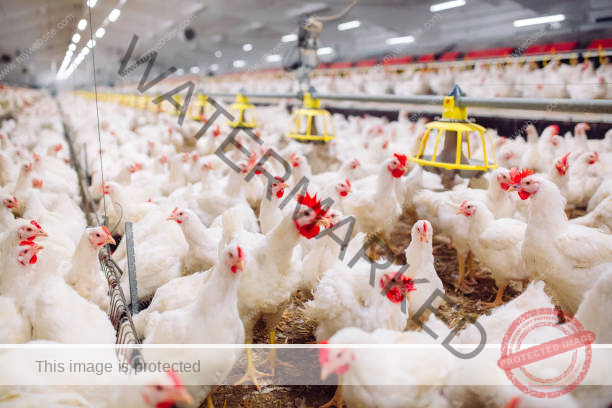
Starting a Poultry Farm with Limited Resources in Ghana: A Comprehensive Guide for New Farmers
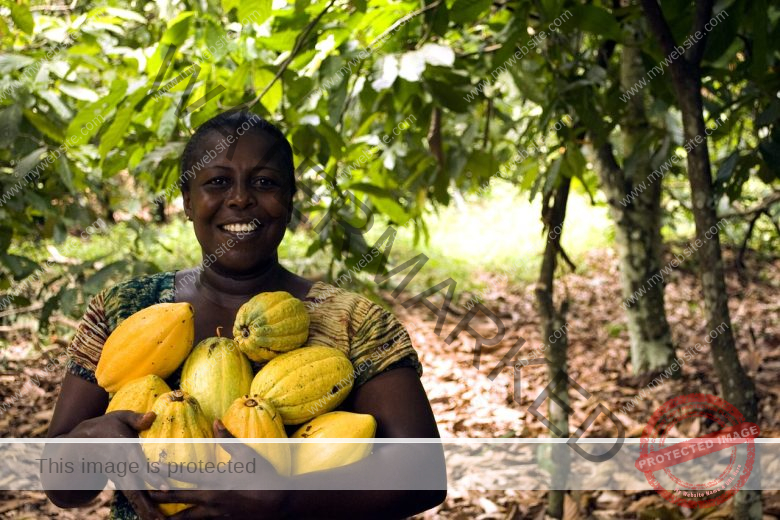
How To Register Agribusiness Company In Kenya (See Full Guide)

Starting a Poultry Farm with Limited Resources in Nigeria: Guide for New Farmers
One reply to “[pdf sample] palm oil farming & production business plan docx”.
- Pingback: [Pdf Sample] Poultry Farming Business Plan In Kenya Docx - Agrolearner
Leave a Reply Cancel reply
Your email address will not be published. Required fields are marked *
Save my name, email, and website in this browser for the next time I comment.
Notify me of follow-up comments by email.
Notify me of new posts by email.

How to Start a Palm Oil Production Business?
Explore our guide on starting a palm oil production business. Dive into each step, from extraction to purification, for a clear understanding of Starting a Business in Palm Oil Manufacturing.
Discover essential steps to launch a successful palm oil production business. From understanding market trends to setting up processing units, get insights and tips on starting a lucrative palm oil venture.
Palm oil derived from the fruits of African oil palms that thrives in tropical rainforest areas. They are similar to sunflower or rapeseed oil but more widely used.
These oil palms flourish in the humid tropics, especially 10 degrees north and south of the equator. Originally from West and South-West Africa, they're now cultivated and farmed to increase the production of palm oil. You'll find palm oil in many African and Brazilian dishes, as well as in cookies, margarine, and chocolate.
By the way, do you know why palm oil is good for cooking? It's not excessively saturated, contains no linolenic acid, and is high in natural vitamin E – making it ideal for frying and grilling. Hence, it's a top choice in kitchens.
The oil extracts from the pulp of the oil palm tree's fruit, which is reddish due to beta-carotene. The fruit is similar to the size of a large olive, contains a single seed, used to make palm kernel oil. Each palm fruit contains about 30-35% oil.
Palm oil is the second most produced edible oil globally. Australia imports around 130,000 tons annually. Indonesia and Malaysia lead in exporting, while India, China, the United States, European Union, and Pakistan are major importers.
Besides cooking, palm oil has medicinal uses, like relieving stomach upsets and promoting eye health with its vitamin A. However, be cautious – studies link palm oil to cholesterol.
Now, let's talk business. The palm oil industry is a money-making machine. While many chase white-collar jobs, the wise ones tap into the agricultural sector's potential. If you're seeking a step-by-step guide to palm oil success, keep reading. Your journey into the palm oil business is about to begin.
So let's start with the market research!
Palm Oil Industry Market Research
India palm oil market (2015).
- Overview : Valued at USD 5.16 billion, driven by population growth and economic advancements.
- Growth Factors : Massive potential with 100% FDI, financial aid, and 95% import reliance.
- Consumption Landscape : Palm oil holds a 40% consumption share in India.
Global Palm Oil Market
- Market Size (2021) : USD 63.65 Billion.
- Revenue forecast (2030) : USD 96.95 Billion
- CAGR : 5.0% from 2022 - 2030
- Projections (2024) : Expected to exceed 85 million metric tons, driven by sustainability and global demand.
- Challenges : Environmental concerns and deforestation impact expansion.
Global Consumption Trends
- Global Consumers : India, Indonesia, and China are major consumers.
- Diverse Applications : Rising demand in food, non-food sectors, and a shift to sustainable production.
Business Preparation and Market Investigation
- Preliminary Stage : Early market investigation for turnkey palm oil factory establishment.
- Success Factors : Research, understanding business nature, competitor analysis, and price awareness are vital.
- Influence of Income and Population: Demand rises with income and population growth.
- Competitor Insight : Essential for project reports and business plans.
Ideal site for a palm oil production plant?
Finding the location to start your palm oil production doesn't require a huge space – it depends on how much palm oil production you're planning.
A small scale palm oil mill plant may consist of only a few palm oil milling machines, while a larger scale palm oil processing plant may include a larger number of machines, as well as additional equipment such as conveyor belts and storage tanks .
In some cases, a complete palm oil processing machine may require a separate space to house the machinery and equipment.
Furthermore, To thrive in this business, start by reaching out to various equipment suppliers. Once you've gathered contacts, delve into preliminary discussions with the palm oil milling equipment and industrial spares manufacturer . Confirm the product prices, grasp the land space required, and understand the specifications for Starting a palm oil processing company.
Palm Oil Extraction Machine
Now, let's talk about picking the right machine to get palm oil. Once you've decided on the location, the next big thing is choosing a palm oil extraction machine. This step is crucial in the palm oil production business plan .
There are different machines out there, so take your time comparing prices and getting feedback from others in the industry before making your final choice. The best palm oil comes from using the right equipment for pressing and refining.
Below we have combined a table presenting machines/equipment used in the palm Oil extraction process.
Investing in high-quality palm oil processing machines is crucial for long-term time and cost savings. Carefully choose machines for each step, and for effective plant operations, hire competent employees with experience in the palm oil processing industry.
Typical Palm Oil Manufacturing Processes
Embarking on the journey of typical palm oil manufacturing involves intricate steps
The crucial first step treats fruit bunches with steam, eliminating bacteria and arresting enzyme activity. This ensures the cessation of fruit degradation.
The steamer softens oil palm fruits, facilitating the release of natural oil. Post-steam treatment, the fruit masses, containing water, oil, fibers, and palm kernel, undergo a meticulous separation process.
Under high pressure, the natural fruit yields a water-oil mixture. Over time, the distinct layer of palm oil forms, allowing extraction from the water. These initial drops result in natural crude palm oil, necessitating further processing at the edible oil refinery.
Utilizing Bunches and Kernel
Remaining empty fruit bunches fuel steam boilers .
These empty bunches are composted, enriching soil fertility with nutrients for oil palm plantations.
The kernel is transported to a seed crushing plant , which crushes the hard kernel to extract the oil oil using palm kernel oil press machines.
Refining Palm Oil
In an edible oil refinery , crude oil undergoes a meticulous water wash to ensure intensive contact for the removal of water-soluble compounds. This process results in an oil-water mixture from which the lighter, refined edible oil distinctly separates and forms a top layer, ready for further purification and processing.
The oil undergoes a crucial bleaching step, employing natural earth to bind and remove impurities.
Volatile components are removed through steam, transforming into gas that exits the oil. The result is a refined and healthy vegetable oil.
Final Manufacturing
Post-refining, the oil undergoes fractionation, separating into distinct fractions based on specific properties, particularly melting points. A dry fractionation plant , also known as a palm oil fractionation plant, further refines palm oil by separating it into two distinct fractions:
- Palm olein oil and
- Palm stearin oil
This precision allows for the creation of palm oil fractions tailored to diverse applications
Each fraction finds application in a variety of products, from margarine and cookies to creams. Palm oil, post-fractionation, becomes a versatile ingredient in an array of manufacturing processes.
Challenges and Solutions in Palm Oil Production Business
Starting a business in palm oil manufacturing brings both challenges and opportunities. Here's a breakdown of key challenges and practical solutions to navigate this dynamic industry
Cost of Palm Oil Production Business
Embarking on the journey of setting up a palm oil production business demands a grasp of the costs involved.
Licenses And Certification For Palm Oil Mill Business
In the context of a sustainable palm oil production line, various certifications ensure adherence to ethical and environmentally friendly practices. Here are some prominent certifications and licenses associated with sustainable palm oil
It's essential for businesses in the palm oil industry to obtain relevant certifications to demonstrate their commitment to sustainable practices. These certifications not only enhance credibility but also contribute to a positive environmental and social impact.
Seizing Success : Path to Effective Palm Oil Production Business
Starting a palm oil production business is a promising opportunity with the potential for significant profits. With the continuous growth in Africa's population, the demand for palm oil is increasing, making it an opportune time to enter this industry.
The relatively low initial investment makes it accessible for a wide range of entrepreneurs. By getting involved in this thriving business, individuals can not only meet the rising demand for palm oil but also position themselves for substantial financial gains.
We are committed to excellence in the field, and stand ready to support you at every step. With a track record of providing top-notch palm oil processing equipment, tailored solutions, and impeccable services, we ensure your venture is set up for success.
Choose Nandt Engitech as your trusted partner, and let's cultivate success together in the flourishing palm oil industry.

Riyaz Tunvar
Riyaz Tunvar is a seasoned Director at N&T Engitech Pvt Ltd, specializing in sales and marketing for industrial plants, refinery, and machinery manufacturers. His deep understanding of the sector, combined with his customer-centric approach, has played a vital role in positioning N&T Engitech as a trusted name in the market.
Build Something People Want
Let's talk about your engineering needs to find the best solutions.
Related Post
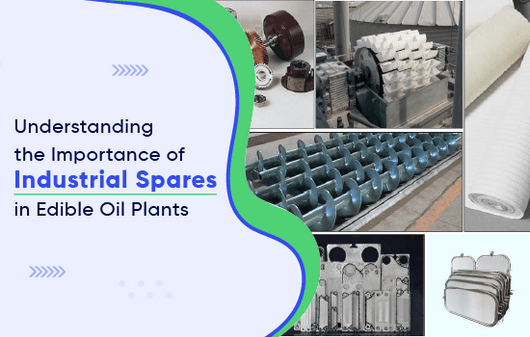
Understanding the Importance of Industrial Spares in Edible Oil Plants

The Journey from Rock to Concrete: How Cement is Made
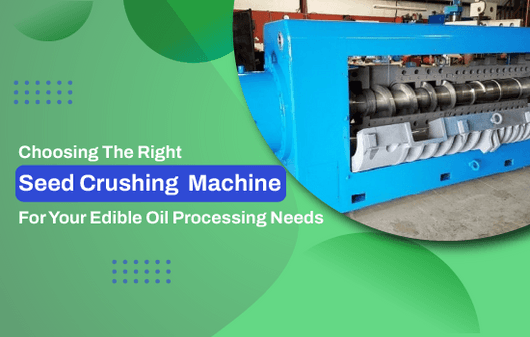
How do you choose the right seed-crushing machine for your edible oil processing needs?
Submit your business inquiry.
Are you interested in learning more about our technologies? Feel free to contact us right away to discuss your project.

How To Write a Business Plan for Palm Oil Production in 9 Steps: Checklist
By alex ryzhkov, resources on palm oil production.
- Financial Model
- Business Plan
- Value Proposition
- One-Page Business Plan
- SWOT Analysis
- Business Model
- Marketing Plan
The palm oil industry is on the rise, and if you have been considering starting your own palm oil production business, now is the time to seize the opportunity. According to the latest statistics, the global palm oil market size was valued at $72.6 billion in 2020 and is projected to reach $114.4 billion by 2028, growing at a CAGR of 6.7%. With such promising growth prospects, it's important to have a well-thought-out business plan to ensure your success in this competitive industry.
To help you get started, we have prepared a comprehensive checklist of the key steps involved in writing a business plan for palm oil production. Following these steps will not only guide you through the process but also increase your chances of establishing a profitable and sustainable business.
First and foremost, you need to identify your target market and assess the demand for palm oil products. Understanding the needs and preferences of your potential customers will enable you to tailor your production and marketing strategies accordingly. Conducting thorough market research is crucial in this regard, as it will help you gather valuable information on competitors, market trends, and potential customers.
Defining your unique selling proposition and positioning strategy is another vital step in your business plan. You need to clearly communicate what sets your palm oil production business apart from the competition and how you plan to position your brand in the market. This will help you attract customers and differentiate yourself in a crowded industry.
Next, you need to determine the required startup costs and secure financing options. Assessing the financial feasibility of your business is essential to ensure you have sufficient funds to cover everything from land acquisition to equipment purchase and operational expenses. Exploring financing options such as loans, grants, or investors can help you secure the necessary capital.
Assessing the availability of palm oil production equipment, raw materials, and potential suppliers is also crucial. You need to have a reliable and efficient supply chain in place to ensure uninterrupted palm oil production. Establishing relationships with key stakeholders, including palm oil growers, processors, and distributors, will play a vital role in this regard.
Developing an organizational structure and identifying the roles and responsibilities of key team members is essential for the smooth operation of your palm oil production business. Assigning specific tasks and ensuring effective communication within your team will contribute to improved efficiency and productivity.
Conducting a SWOT analysis is another critical step in your business plan. This analysis will help you identify the strengths, weaknesses, opportunities, and threats of your business, enabling you to devise strategies to leverage your strengths, overcome weaknesses, capitalize on opportunities, and mitigate threats.
Lastly, you need to create a preliminary marketing and sales strategy to promote your palm oil products effectively. This includes identifying your target audience, determining your pricing strategy, and developing promotional tactics to increase brand awareness and drive sales.
By following these nine steps, you will be well-prepared to write a comprehensive business plan for your palm oil production venture. Remember, careful planning and execution are key to success in the palm oil industry, so take the time to analyze each step thoroughly and make informed decisions.
Identify The Target Market And Assess The Demand For Palm Oil Products.
Before embarking on a palm oil production business, it is crucial to identify the target market and assess the demand for palm oil products . Understanding the market dynamics will help you tailor your business strategies and ensure a profitable venture.
To identify the target market, conduct thorough market research to determine who your potential customers are. This includes individuals, retailers, and manufacturers who use palm oil as an ingredient in their products. Additionally, consider the geographical location and preferences of your target market.
During the market research process, assess the demand for palm oil products . Evaluate the current market trends, consumer preferences, and industry forecasts. This will give you insights into the potential growth and profitability of the palm oil market.
Here are some tips to consider:
- Study the demographics of your target market to determine their purchasing power and preferences.
- Identify any existing gaps or niches in the market that your palm oil products can fill.
- Research industry reports and publications to stay updated on the latest trends and future projections.
- Engage in conversations with potential customers and industry experts to gain valuable insights and feedback.
By thoroughly identifying the target market and assessing the demand for palm oil products, you can strategically position your business to meet the needs of your customers and capitalize on the opportunities in the market.
Conduct Market Research To Gather Information On Competitors, Market Trends, And Potential Customers.
Market research is a crucial step in developing a successful business plan for palm oil production. It provides valuable insights into the competitive landscape, market trends, and potential customers. By conducting comprehensive market research, you can make informed decisions and develop effective strategies to position your business in the palm oil industry.
When starting your market research, begin by identifying your main competitors. This includes both local and international companies involved in palm oil production. Analyze their market share, pricing strategies, product offerings, and distribution channels. This information will help you understand the competitive landscape and identify the areas where you can differentiate your business.
Additionally, gather data on market trends within the palm oil industry. Look for information on the growth rate of the industry, emerging technologies, and changes in consumer preferences. This will allow you to anticipate market shifts and adjust your business strategy accordingly. Stay up-to-date with industry publications, reports, and online resources to ensure you have the most current information.
Market research should also focus on understanding your potential customers. Identify the target market for your palm oil products and gather data on their preferences, needs, and purchasing behaviors. This can be done through surveys, interviews, and online research. Gather information on their preferred packaging, pricing sensitivity, and distribution preferences.
Tips for conducting effective market research:
- Utilize both primary and secondary research methods. Primary research involves gathering data directly from potential customers through surveys or interviews. Secondary research involves analyzing existing data from industry reports, government publications, and online databases.
- Consider hiring a market research firm to assist with data collection and analysis. They have the expertise and resources to provide in-depth insights.
- Stay updated with the latest market research techniques and methodologies. This will help you gather reliable and relevant data.
- Regularly review and update your market research to keep pace with changing market dynamics and customer preferences.
By conducting thorough market research, you will gain a deeper understanding of your competitors, market trends, and potential customers. This information will serve as a solid foundation for developing a successful business plan for palm oil production.
Define The Unique Selling Proposition And Positioning Strategy For The Palm Oil Production Business
In order to stand out in the competitive market of palm oil production, it is crucial to define a unique selling proposition (USP) and develop a strong positioning strategy for your business. A USP is a distinctive feature or benefit that sets your product or service apart from the competition. This feature should resonate with your target market and create a strong value proposition.
When defining your USP, consider the attributes that make your palm oil production business unique. Is it your commitment to sustainable and ethical practices? Do you offer a premium quality product with a specific certification? Is your production process more efficient or innovative compared to others in the industry?
To identify your USP, it is important to conduct thorough market research and gather insights from potential customers. Understand their needs, preferences, and pain points related to palm oil products. This will help you tailor your USP to meet their specific demands.
Once you have defined your USP, it is essential to develop a positioning strategy that effectively communicates this unique value to your target market. Positioning refers to the image or perception you want your customers to have about your brand in relation to competitors.
To create a strong positioning strategy, consider the following steps:
- Identify your target market segments: Determine the specific groups of customers who are most likely to be interested in and benefit from your palm oil products. This will help you tailor your marketing messages and efforts to reach the right audience.
- Understand your competitors: Conduct a competitor analysis to identify the strengths and weaknesses of other palm oil producers in the market. This will allow you to differentiate your business and position yourself effectively.
- Highlight your USP: Clearly communicate your unique selling proposition in all marketing materials, including your website, packaging, and promotional campaigns. Emphasize the benefits and advantages that your palm oil production business brings to customers.
- Create a brand identity: Develop a brand image that aligns with your USP and resonates with your target market. This includes choosing a name, logo, colors, and overall design that reflect the values and positioning of your business.
- Conduct surveys or interviews with potential customers to gather insights on what they consider important in palm oil production. This will help you refine your USP.
- Regularly review and update your positioning strategy to stay relevant in the dynamic market. Keep an eye on changing consumer preferences and market trends.
- Focus on building trust and credibility with your target market. Share information about your sustainable practices, certifications, and any other relevant credentials.
Determine The Required Startup Costs And Secure Financing Options
Before starting a palm oil production business, it is crucial to determine the required startup costs and secure financing options. This step is essential to ensure the smooth operation of your business and avoid any financial constraints along the way.
Firstly, you need to identify all the expenses associated with starting the business. This may include purchasing or leasing land for palm oil cultivation, acquiring machinery and equipment, obtaining necessary permits and licenses, and hiring skilled labor.
To accurately determine the startup costs, it is advisable to conduct thorough research and consult industry experts or professionals. They can provide you with insights into the realistic cost estimates, taking into account factors such as location, scale of production, and specific requirements of the contract farming model.
- Consider seeking assistance from agricultural consultants or financial advisors who have experience in the palm oil industry. They can help you create a comprehensive budget plan.
- Include a buffer or contingency fund in your budget to cover unexpected expenses or challenges that may arise during the initial stages of your business.
- Explore different financing options, such as bank loans, grants, or partnerships with investors or agricultural organizations.
- Prepare a detailed business plan and financial projections to present to potential lenders or investors. This will demonstrate the viability and profitability of your palm oil production business.
When seeking financing options, it is important to evaluate and compare the terms and conditions offered by different sources. Consider the interest rates, repayment terms, and any collateral requirements. Choose the option that suits your business needs and financial capabilities.
Securing financing for your palm oil production business may require presenting a convincing case to potential lenders or investors. Emphasize the market demand for palm oil products, the uniqueness of your business model, and your plans for growth and profitability.
Remember to regularly review and update your financial plan as your business evolves. Being diligent in monitoring your expenses and cash flow will help you make informed decisions and ensure the long-term success of your palm oil production venture.
Assess The Availability Of Palm Oil Production Equipment, Raw Materials, And Potential Suppliers.
One crucial step in creating a successful palm oil production business is assessing the availability of necessary equipment, raw materials, and potential suppliers. This assessment ensures that you have everything needed to efficiently and effectively produce palm oil and meet market demand.
Palm Oil Production Equipment: Begin by researching and identifying the specific equipment required for palm oil production. This may include machinery such as palm oil presses, sterilizers, clarifiers, and separators. Consider factors such as production capacity, maintenance requirements, and compatibility with the type of palm oil production you plan to undertake. Evaluate the availability of reliable suppliers for these equipment and compare their prices, warranties, and after-sales services.
Raw Materials: Palm oil production requires a steady supply of fresh palm fruit bunches. Assess the availability of fresh palm fruits in your target region and determine the potential volume you can source from local farmers or plantations. Consider factors such as harvest seasons, transportation logistics, and potential partnerships with farmers or growers. Additionally, evaluate the quality and sustainability of the raw materials to ensure compliance with industry standards and customer expectations.
Potential Suppliers: Identify and assess potential suppliers for other raw materials and inputs required for palm oil production such as fertilizers, pesticides, and processing chemicals. Research reputable suppliers who can provide consistent and high-quality inputs to support your production process. Evaluate factors such as pricing, delivery capabilities, and their commitment to sustainability and ethical sourcing practices.
- Engage in market research and network within the industry to gain insights into recommended equipment brands and suppliers.
- Consider the proximity of suppliers to your production facility to minimize transportation costs and delays.
- Seek recommendations and references from other palm oil producers or industry associations to identify reliable suppliers.
- Establish open communication channels with potential suppliers to discuss pricing, terms, and possible collaborations.
- Regularly review and update your assessment of equipment availability, raw material sources, and potential suppliers to stay competitive and meet changing market demands.
Establish Relationships With Key Stakeholders Such As Palm Oil Growers, Processors, And Distributors.
Establishing relationships with key stakeholders in the palm oil industry is crucial for the success of your palm oil production business. These stakeholders include palm oil growers, processors, and distributors, who play vital roles in the supply chain. By developing strong relationships with these stakeholders, you can ensure a reliable and efficient supply of palm oil for your business.
In order to establish relationships with key stakeholders, it is important to:
- Identify and research potential stakeholders in the palm oil industry. Look for reputable palm oil growers, processors, and distributors who meet your business requirements and align with your values.
- Reach out to potential stakeholders and introduce your palm oil production business. Explain your business model, objectives, and the benefits of a partnership or collaboration with your company.
- Conduct meetings or site visits with potential stakeholders to discuss their capabilities, capacity, and quality standards. Evaluate their production processes, facilities, and certifications to ensure they meet industry standards.
- Negotiate terms and conditions with the stakeholders, including pricing, quality control measures, delivery schedules, and any necessary contractual agreements.
- Establish clear communication channels with the stakeholders to ensure smooth and efficient collaboration. Regularly update and engage with them regarding production requirements, market demand, and any changes in business plans or strategies.
- Develop a mutually beneficial partnership with the stakeholders by offering support, sharing technical knowledge, and providing incentives for their continuous improvement and growth.
- Do thorough research and due diligence on potential stakeholders to ensure reliability, quality, and sustainability of their palm oil production.
- Consider developing long-term partnerships rather than short-term contracts to strengthen relationships and secure a stable supply of palm oil.
- Regularly review and evaluate the performance and compliance of your stakeholders to maintain quality standards and address any issues promptly.
- Stay updated with industry trends, regulations, and certifications to ensure your stakeholders comply with environmental and social responsibilities.
- Invest in building trust and transparency with your stakeholders, fostering open communication and collaboration for a mutually beneficial partnership.
Develop An Organizational Structure And Identify The Roles And Responsibilities Of Key Team Members
When setting up a palm oil production business, it is crucial to establish a clear and effective organizational structure. This ensures that the business runs smoothly and all tasks and responsibilities are properly assigned. Identifying the roles and responsibilities of key team members is equally important, as it allows for efficient division of labor and clarity in decision-making processes.
Here are some essential steps to develop an organizational structure and define the roles and responsibilities of key team members:
- Start by identifying the core functions and departments required for the successful operation of the palm oil production business. This can include areas such as production, quality control, sales and marketing, finance, and administration.
- For each department, determine the key roles and responsibilities that need to be fulfilled. Consider the specific skills and expertise required for each position and define the reporting hierarchy to establish clear lines of communication and accountability.
- Once the roles and responsibilities are defined, identify the individuals who possess the necessary skills and qualifications to fulfill these positions. This may involve hiring new employees or reassigning existing staff members.
- Clearly communicate the roles, responsibilities, and reporting structure to all team members. This will help to eliminate any confusion and foster a sense of accountability and ownership among employees.
- Regularly review and update the organizational structure and roles as the business grows and evolves. This allows for flexibility and adaptation to changing market dynamics and business needs.
Developing an organizational structure and identifying the roles and responsibilities of key team members is a crucial step in setting up a successful palm oil production business. By ensuring clarity and accountability within the organization, you can create a strong foundation for growth and operational efficiency.
Conduct A SWOT Analysis To Identify The Strengths, Weaknesses, Opportunities, And Threats Of The Business.
Conducting a SWOT (Strengths, Weaknesses, Opportunities, and Threats) analysis is an essential step in developing a successful business plan for palm oil production. It allows you to gain a deeper understanding of your business's internal strengths and weaknesses, as well as external opportunities and threats in the market. By identifying these factors, you can develop strategies to optimize strengths, address weaknesses, capitalize on opportunities, and mitigate potential threats.
When conducting a SWOT analysis for your palm oil production business, consider the following:
- Strengths: Identify the internal factors that give your business an advantage over competitors. This could include factors such as access to a reliable supply of palm oil, established relationships with key stakeholders, strong technical expertise, or unique production methods.
- Weaknesses: Determine the internal factors that may put your business at a disadvantage. These could include factors such as limited financial resources, a lack of experience in palm oil production, or a small customer base.
- Opportunities: Explore external factors that could potentially benefit your business. This could include factors such as an increasing demand for sustainable palm oil products, the potential to expand into new markets, or favorable government policies and regulations.
- Threats: Identify external factors that could potentially harm your business. This could include factors such as intense competition, fluctuating market prices, changing consumer preferences, or negative environmental impacts associated with palm oil production.
- Engage key stakeholders in the SWOT analysis process to gain diverse perspectives and insights.
- Consider conducting a thorough analysis of your competitors' strengths, weaknesses, opportunities, and threats to better understand your market position.
- Regularly revisit and update your SWOT analysis as market conditions and business dynamics evolve.
By conducting a comprehensive SWOT analysis, you will be able to develop a better understanding of your palm oil production business, enabling you to make informed decisions and develop effective strategies to achieve success in the market.
Create A Preliminary Marketing And Sales Strategy To Promote The Palm Oil Products
Once you have identified your target market, assessed the demand for palm oil products, and conducted market research, it is essential to develop a preliminary marketing and sales strategy to promote your palm oil products. To effectively reach your customers and maximize sales, consider the following key steps:
- 1. Define your target audience: Clearly identify the specific demographic, geographic, and psychographic characteristics of your target customers. This will help you tailor your marketing messages and sales strategies accordingly.
- 2. Evaluate your competitive advantage: Determine what sets your palm oil products apart from competitors in the market. Highlight the unique qualities, sustainability practices, or certifications that make your products more desirable to consumers.
- 3. Establish your brand identity: Develop a compelling and consistent brand image that aligns with your target audience's preferences and values. Create a memorable brand name, logo, and visual identity to differentiate your palm oil products in the market.
- 4. Design effective promotional materials: Create visually appealing brochures, flyers, and product catalogs that highlight the benefits, quality, and sustainable features of your palm oil products. Consider using professional product photography and engaging copy to capture the attention of potential buyers.
- 5. Utilize online marketing channels: Leverage the power of digital marketing to reach a wider audience. Establish a user-friendly website that showcases your palm oil products and provides detailed information about their health benefits, applications, and sustainability practices. Implement search engine optimization (SEO) strategies to improve your website's visibility in online searches. Use social media platforms, targeted online advertisements, and email marketing campaigns to engage with potential customers, increase brand awareness, and drive sales.
- 6. Build partnerships and collaborations: Explore opportunities to collaborate with retailers, distributors, and other businesses that share a similar target market or values. Establish mutually beneficial partnerships that can help expand your distribution network and increase brand exposure.
- 7. Offer promotional incentives: Consider implementing promotional strategies such as discounts, loyalty programs, or free samples to incentivize potential customers to try your palm oil products. Encourage customer reviews and testimonials to build trust and credibility.
- Regularly monitor market trends, consumer preferences, and competitors' marketing strategies to adapt and optimize your marketing and sales efforts.
- Seek feedback from customers to gain insights into their preferences and satisfaction levels. Use this feedback to refine your marketing messages and improve your products.
- Participate in industry events, trade shows, and conferences to network with potential customers, suppliers, and industry experts. This can help you stay updated with the latest developments and forge valuable connections.
- Consider collaborating with influencers or industry experts to endorse your palm oil products. Their positive reviews and recommendations can significantly impact consumer purchase decisions.
Conclusion:
In conclusion, writing a business plan for palm oil production involves several crucial steps. Firstly, it is important to identify the target market and assess the demand for palm oil products. This can be done through market research, which also helps in understanding competitors and potential customers. Defining the unique selling proposition and positioning strategy is vital for standing out in the market.
Furthermore, determining the required startup costs and securing financing options is crucial to ensure smooth operations. Assessing the availability of production equipment, raw materials, and potential suppliers is necessary to guarantee a steady supply. Building strong relationships with key stakeholders such as growers, processors, and distributors is essential for long-term success.
Creating an organizational structure and identifying the roles and responsibilities of team members allows for efficient operations. Conducting a SWOT analysis helps in understanding the strengths, weaknesses, opportunities, and threats of the business. Lastly, developing a preliminary marketing and sales strategy is necessary to promote the palm oil products effectively.
Overall, following these nine steps in writing a business plan for palm oil production sets the foundation for a successful venture. The contract farming model can be a beneficial approach, providing a guaranteed supply of palm oil while supporting farmers and enhancing their livelihoods.
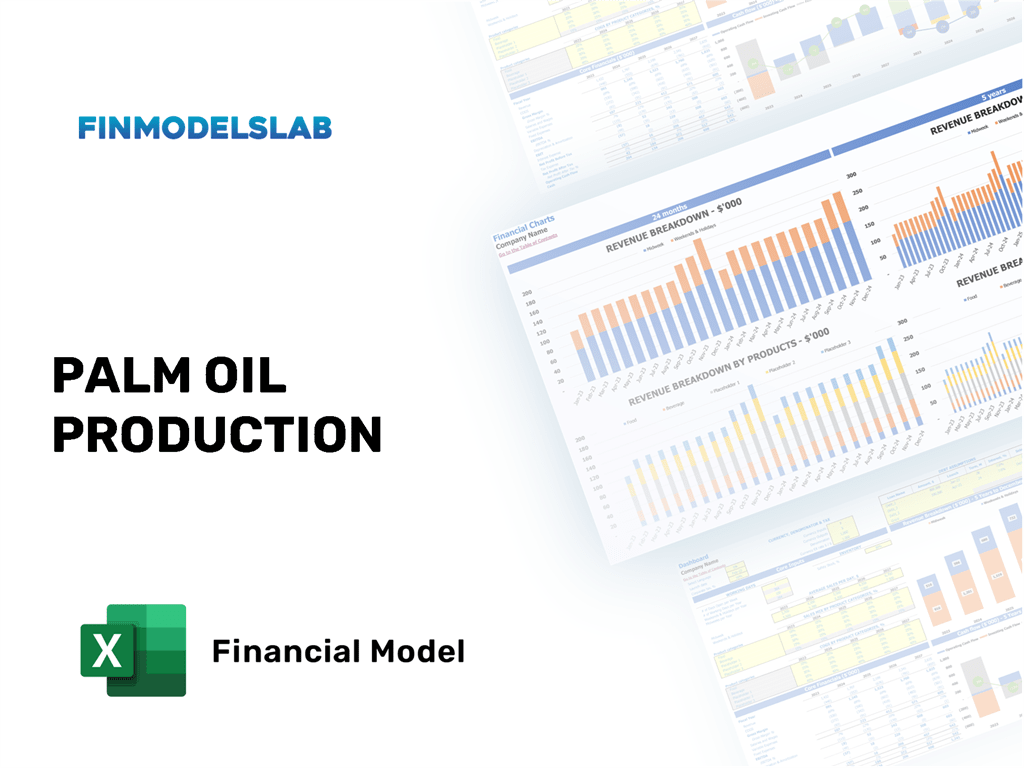
$169.00 $99.00 Get Template
Related Blogs
- Starting a Business
- KPI Metrics
- Running Expenses
- Startup Costs
- Pitch Deck Example
- Increasing Profitability
- Sales Strategy
- Rising Capital
- Valuing a Business
- How Much Makes
- Sell a Business
- Business Idea
- How To Avoid Mistakes
Leave a comment
Your email address will not be published. Required fields are marked *
Please note, comments must be approved before they are published
Business Ideas
Investment Ideas
Make Money at Home
- Bitcoin and Xcoins
- Earn On Social Networking
- Freelancing
- Make a Website
- Money Making Apps
- Affiliate Marketing
- Online Surveys
- Start a Blog
- Web Hosting
Startup Ideas
- Your Passion Your Money
Make Money Online
Palm Oil Production Business Plan: How to Setup for Good Profits
Table of contents, what is palm oil, need for palm oil, why start a palm oil production business, setting up a palm oil plantation, process of palm oil production, harvesting process, how to start a palm oil production business, palm oil production business plan template, marketing and sales strategy, financial plan.
The palm oil production business plan is a comprehensive guide that covers all aspects of starting a palm oil production business. This includes the feasibility study, market research, financial projections, and more. The palm oil production business plan is a valuable resource for entrepreneurs who want to enter the palm oil industry.
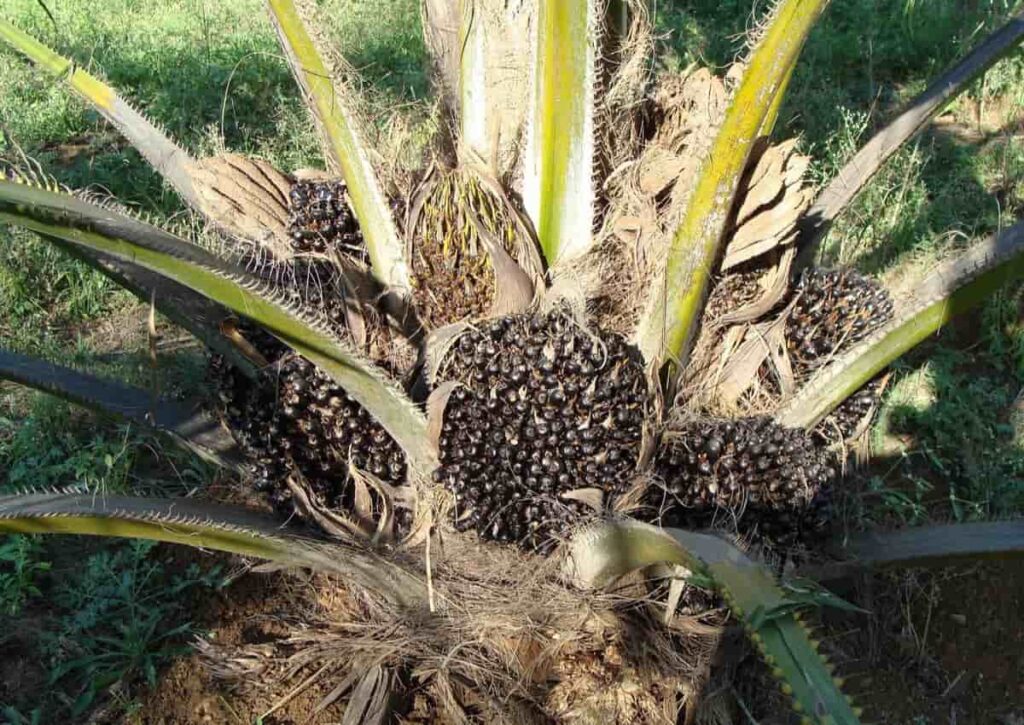
It provides important information on the market, competition, and strategies for success. This business plan will help you make informed decisions about starting a palm oil production business. It is essential reading for anyone considering this type of venture.
Palm oil production business plan
It is an edible vegetable oil derived from the fruit of the oil palm tree. It is the world’s most widely produced edible oil and is used in various food products, cosmetics, and biofuels. However, palm oil production is a complex and capital-intensive process requiring significant land, labor, and infrastructure investment. Therefore, a palm oil production business plan must consider these factors to succeed.
The first step in starting a palm oil production business is to acquire the necessary land and infrastructure. This can be done by leasing, purchasing existing plantations, or by developing new plantations. The next step is to hire the labor force to operate the plantation and process the palm fruit into crude palm oil (CPO). Finally, the CPO must be refined into finished products such as cooking oil, biodiesel, or other end uses.
In case you missed it: How to Start a Wholesale Oil Business In India
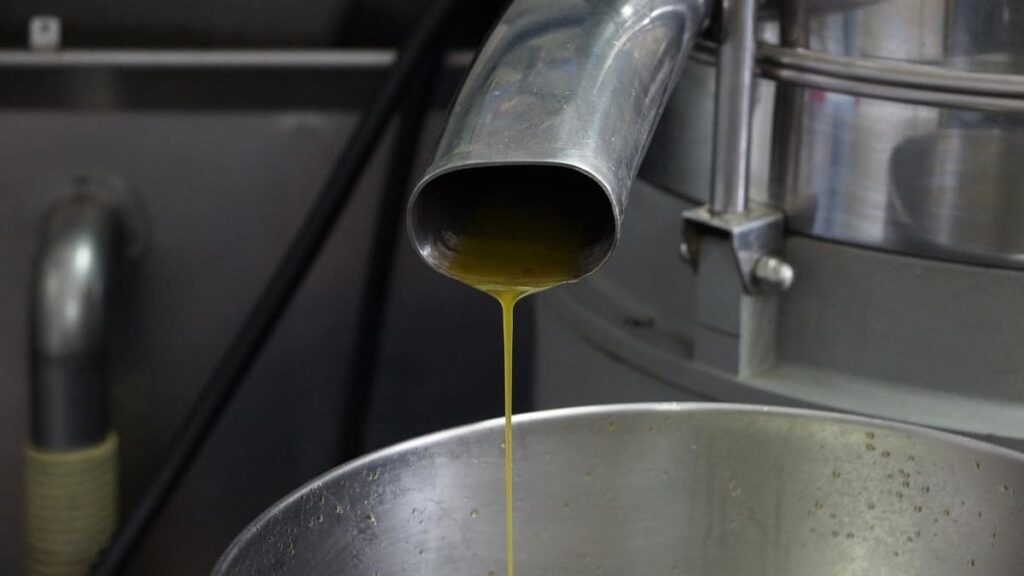
A successful palm oil production business plan will consider these costs and factor them into a comprehensive financial model. The model should include detailed assumptions about yield, operating costs, capital costs, selling prices, and other relevant factors. With this information, investors can make informed decisions about whether or not to proceed with a particular palm oil production project.
As the population continues to grow across the globe, so does the demand for food. To meet this demand, farmers are increasingly turning to palm oil as a source of vegetable oil. Palm oil is a type of edible (cooking) oil extracted from the fruit of the African oil palm tree. It is high in saturated fats and has several uses, including cooking, cosmetics, and biofuel. The demand for palm oil has grown significantly in recent years as it is seen as a more efficient and sustainable option than other vegetable oils.
It takes less land to produce palm oil than other oils, such as soybean or rapeseed oil, making it more environmentally friendly. In addition, palm oil can be produced with little or no water, making it ideal for countries that experience water shortages. However, palm oil production has come at a cost to the environment. Clearing rainforests for palm plantations has contributed to deforestation and climate change.
In case you missed it: Herbal Oil Project Report, Making Process
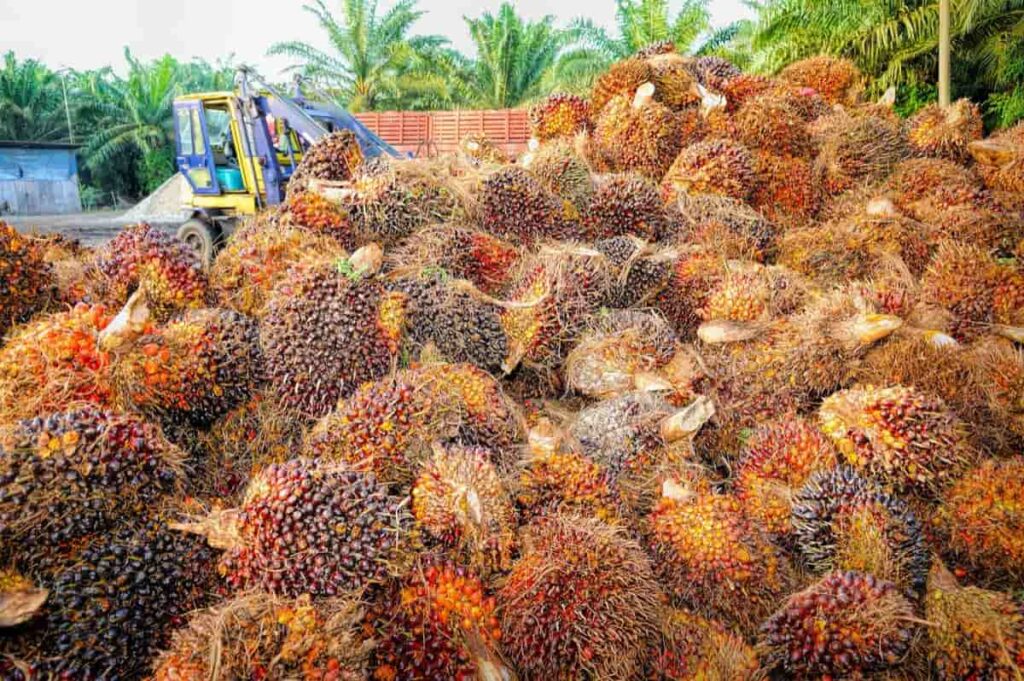
In addition, pesticides and fertilizers on these plantations can pollute rivers and groundwater. There are also concerns about the working conditions on some plantations, where workers may be exposed to hazardous chemicals or forced to work long hours for low wages. Despite these concerns, palm oil remains an essential part of the global economy and will likely continue to play a role in meeting the world’s growing demand for food.
There are many reasons to start a palm oil production business. Palm oil is versatile and healthy oil used in various products. It is also a sustainable source of income for smallholder farmers and can help improve rural communities’ livelihoods. Starting a palm oil business can be a viable and profitable venture for entrepreneurs looking to make a difference in the world.
Palm oil production can help create jobs, provide economic opportunities in rural areas, and contribute to developing more sustainable supply chains. In addition, palm oil businesses can promote best practices in palm oil production and sustainability, which can help protect this important natural resource.
A palm oil plantation is a large farm that produces palm oil. This palm oil is a vegetable oil extracted from palm trees’ fruits. It is used in cooking and also as a biofuel. To set up a palm oil plantation, you must acquire land, obtain financing, plant trees, and hire workers. The process can take several years and requires significant investment. But once operational, a palm oil plantation can be a profitable enterprise.
In case you missed it: Oregano Oil Project Report, Business Plan
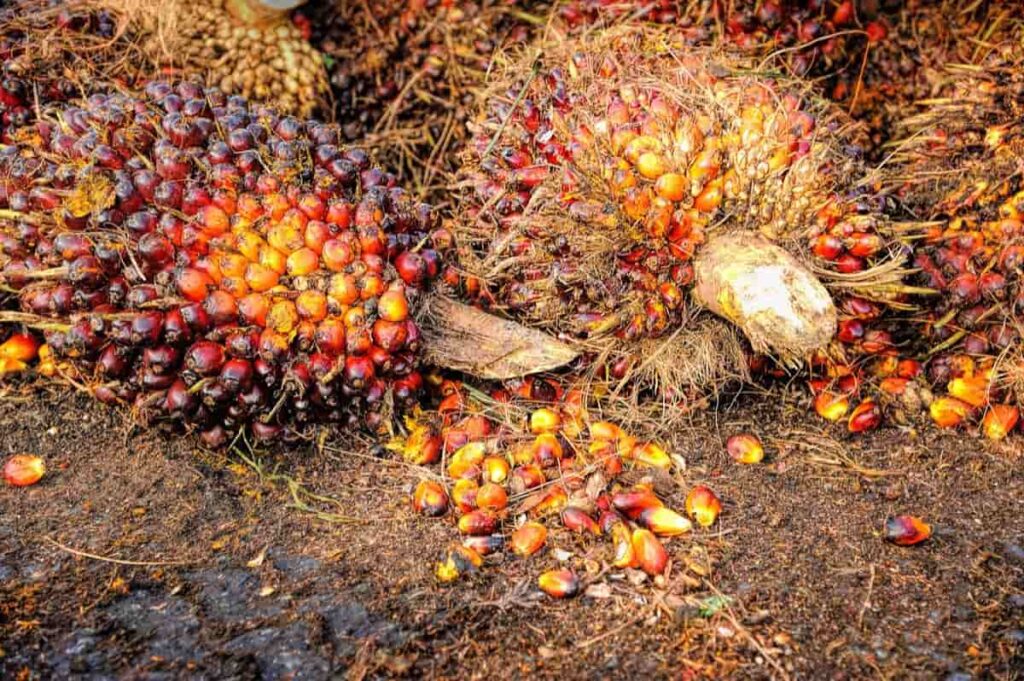
The process of palm oil production is a long and complicated one. It begins with the harvesting of fruit from palm trees. The fruit is then transported to a mill, where it is crushed, and the oil is extracted. The extracted oil is then transported to a refinery and refined into palm oil. The refined palm oil is then transported to a fractionation plant and fractionated into various oil grades. The different grades of palm oil are then transported to buyers who use them for various purposes. Palm oil is used in different products, including cosmetics, soaps, detergents, and margarine.
The harvesting process of palm oil production is a complex and labor-intensive operation. It involves using large machines to extract the oil from the palm fruits and a great deal of manual labor. The process begins with the collection of ripe palm fruits from the trees. These fruits are then transported to the mill, where they are crushed and pressurized to extract the oil.
After the palm oil has been extracted, it is refined and processed into various products. These products are then shipped to customers around the world. The entire process of palm oil production is quite complex and requires a great deal of planning and coordination.
If you are looking to start a palm oil production business, there are a couple of things you need to know. First, palm oil is a type of vegetable oil derived from the fruit of the oil palm tree. It is used in various products, including food, cosmetics, and biodiesel fuel. The first and foremost thing you need to do when starting a palm oil production business is to create a business plan. This will help determine the costs and benefits of starting your own business.
You will also need to find a suitable location for your business. Living in an area with many palm trees will be easier than living without them. Once you have your business plan and location, you must purchase the necessary equipment. This includes an oil press, extraction machine, and refining machine. You will also need to buy palm fruits from farmers or suppliers. Once you have your equipment and raw materials, you can produce palm oil.
In case you missed it: Cedarwood Oil Project Report, Business Plan
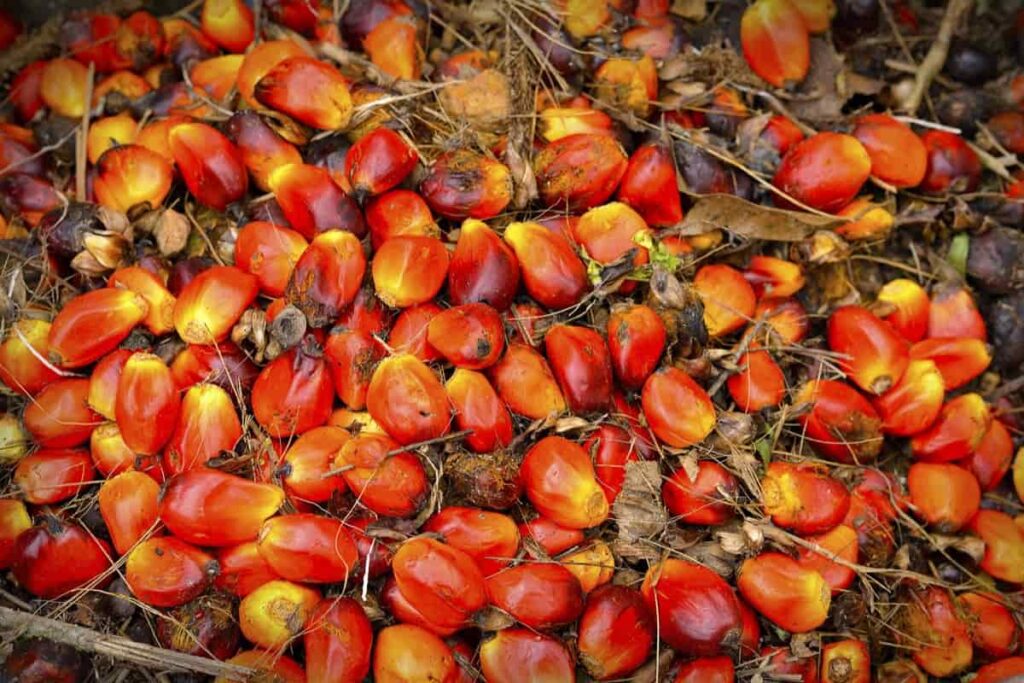
The fruit must first be harvested from the trees to produce palm oil. This is done by hand or with the use of machines. The next step is extracting the fruit oil using an extraction machine. After the oil has been extracted, it has to go through refining process before it can be used in products or sold as fuel.
If you’re looking to start a palm oil production business, you’ll need a comprehensive business plan. Luckily, we’ve got a template that will help you get started. This palm oil production business plan template includes an executive summary, company overview, market analysis, financial projections, and more.
With this template, you can quickly and easily develop a professional business plan for your new venture. To start your palm oil production business plan, download the template and fill in the necessary information. Once you’re finished, you’ll have a professional document to help secure funding and get your business off the ground.
The marketing and sales strategy for a palm oil production business plan should include a detailed analysis of the target market, the competition, and the company’s strengths and weaknesses. The plan should also include a sales forecast, a marketing budget, and a timeline for implementing the marketing and sales strategy.
A well-written business plan for a palm oil production company should include a detailed financial plan. This financial plan should include a section on the company’s current financial situation and future income and expenses projections. The financial plan should start with a brief overview of the company’s current financial situation.
In case you missed it: Argan Oil Project Report, Business Plan
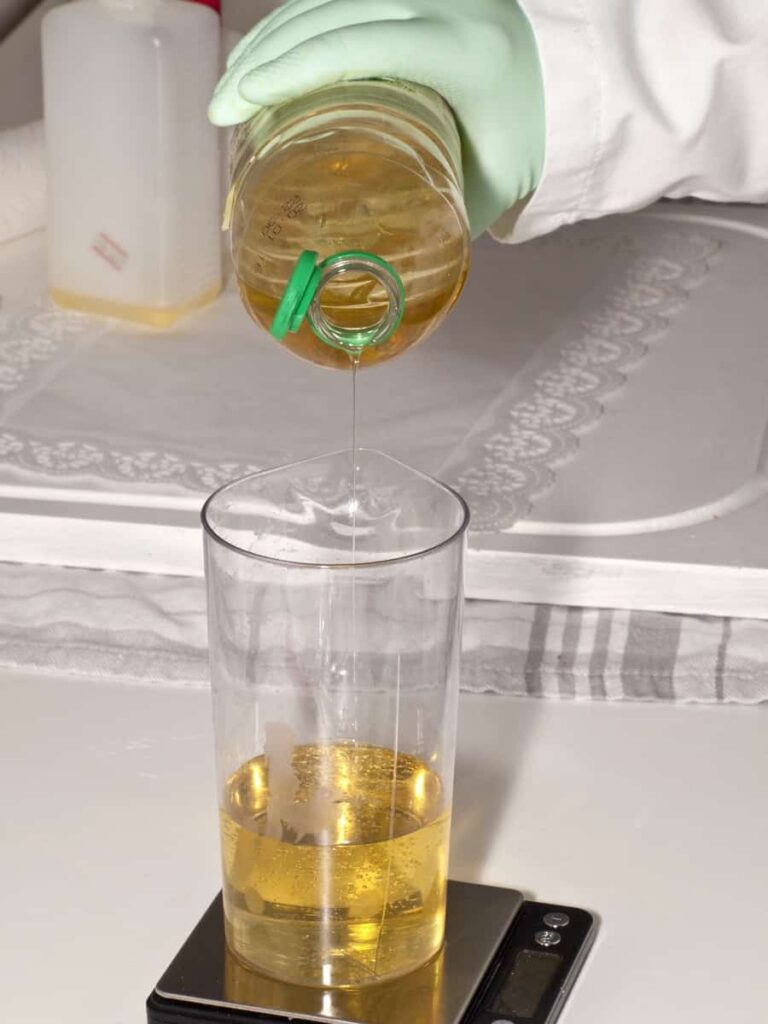
This overview should include the company’s revenue, expenses, and cash flow. It should also discuss the company’s existing debts and assets. Next, the financial plan should provide projections for the company’s future income and expenses. These projections should be based on realistic assumptions about the future palm oil market and its costs.
The projections should show how much money the company will likely make or lose over the next few years. Finally, the financial plan should include a discussion of the risks that could affect the company’s ability to meet its financial goals. These risks could include changes in palm oil prices, unexpected increases in production costs, or delays in getting new palm oil plantations up and running.
A palm oil production business can be a very lucrative venture. With the right business plan in place, you can reap the benefits of this highly profitable industry. However, it is essential to research and develop a solid plan before getting started. This will help you avoid potential pitfalls and ensure your business is booming.
Handicraft Making at Home: A Small Profitable Business Idea
Pet-tech startups: innovations for animal lovers, tech repair services: meeting the demand for gadget maintenance, maximizing rewards: smart credit card habits for cashback and points, ultimate guide to making money from goat milk business, how to start an agricultural value added product business.
- Value-Added Business Ideas for Greenhouse: The Best Ways to Make Profits with Greenhouse Farming
How to Make Profits with Organic Country Chicken: Best Strategies for Beginners
10 value-added business ideas for millets: low-investment and highly profitable, why cleaning service business becoming more profitable in metro cities in india, 10 best businesses to start in ayodhya for profits, top drone business ideas in india: unlocking aerial innovation & opportunities, top 10 service businesses you can start with no money, ultimate guide to starting a home-based advertising agency business.
- Starting a Nail Salon Near Your Location: Check List, Business Plan, Licensing, and Opening Instructions
Construction Company Name Ideas: Guide to Create New Construction Company Names
8 best small businesses to start in hyderabad: low-cost and profitable, 10 best small businesses to start in massachusetts: low-cost and profitable, 10 best small businesses to start in maryland: low-investment and profitable, 10 best small businesses to start in delaware: low-investment and profitable.
- 10 Best Small Businesses to Start in Connecticut: Low-Investment and Profitable
- Top 10 Best Online Pet Business Ideas: Exploring Cats to Dogs
- 10 Best Small Businesses to Start in Colorado: Low-Investment and Profitable
- Top 10 Profitable Small Business Ideas in California: Low-Investment Tips
- From Little Rock to Fayetteville: Top 10 Profitable Small Business Ideas in Arkansas
- Top 10 Profitable Small Business Ideas in Alabama: Discover Opportunities in Alabama’s Growing Cities
- Top 10 Profitable Small Business Ideas in Arizona: Discover Opportunities in Arizona’s Growing Cities
- Golf Business Ideas: Exploring Golf Course Money Making Ideas
- Low Capital Profitable Small Farm Ideas: Farming Ideas to Make Money
- How to Write a Business Plan for Daycare: Exploring from Financial Projections to Risk Management
- Home Daycare License Requirements: Exploring State-wise In-home Daycare Requirements
- How Profitable is Day Care Business: How Much Does a Daycare Owner Make a Month or Year?
- How to Open a Daycare Center in Toronto, Canada: Business Plan, Licenses and Permits
- How to Start Meal Prep and Delivery Services: A Popular Business Idea
- How to Start a Milk Chilling Plant Business
- How to Start Coconut Shell Charcoal Business: Business Plan for Maximizing Profits
LEAVE A REPLY Cancel reply
Save my name and email in this browser for the next time I comment.
Value-Added Business Ideas for Greenhouse: The Best Ways to Make Profits with...
Starting a nail salon near your location: check list, business plan, licensing,..., ideas to make money in india – a full guide, mudra yojana loan scheme, eligibility, how to apply, profit in dry fruit business (cost to start), how to make money from rice mill business in india, profitable agriculture business ideas in india, government loans for women entrepreneurs in india.

How to Start an Oil Palm Plantation – Sample Business Plan Template
By: Author Tony Martins Ajaero
Home » Business ideas » Agriculture Industry » Crop Cultivation
Are you interested in starting a palm oil plantation and you need advice on how to go about it? Do you need a sample palm oil plantation business plan template or feasibility study report ? Then i advice you read on.
LOOK!!! There is currently a revolution going on in the agricultural industry, not only in Nigeria but all over the world. Food is an important necessity of life and the world governments cannot allow food shortage as it might lead to crisis. If there is any better time to start a business in the agriculture sector, that time is now.
Do you have an undeveloped land in a remote area, or you inherited a land that you know you will not be developing in the next ten years? Then this is the best time to turn that land into an income producing asset.
Why You Should Start a Palm Oil Plantation Today
The oil palm tree is one of the most useful trees ever known. Every part of the tree – from its fruit to its leaves and trunk, and to its sap – is used for one thing or the other. While the fruits are processed into palm oil and palm kernel oil, the fronds ( leaves ) are used for roofing houses in rural areas and camps, and the sap ( palm wine ) is a refreshing drink taken in many parts of Africa.
Palm oil is red in color and is used for domestic cooking in many countries. It is also used in the production of soaps and cosmetics, just like palm kernel oil, which is made from the same fruit. If you live in a country like Nigeria , Ghana, etc; where red palm oil is in huge demand domestically and industrially, you can make huge profits by starting an oil palm plantation. Read on to find out what you need to know and do to start an oil palm plantation.
Starting an Oil Palm Plantation – Sample Business Plan Template
Oil palm plantation simply involves cultivating oil palm trees. When it is time to harvest, you will sell your palm fruits to manufacturers, who would process the fruits to produce red palm oil. After harvesting and selling, you will wait until the next harvesting season to sell again. This can continue for decades, which means an oil palm plantation can continue to fetch you huge income for several years to come.
Requirements for Starting an Oil Palm Plantation
Though it may not sound like a business, due to the “ plantation” tag. But the truth is that, an oil palm plantation is a business, and you should regard it as such. This means starting it requires the same input factors that other business require, which are land, labor, and capital. We will now discuss each of these factors.
Since you are starting an oil palm plantation, you will definitely need a large expanse of land. This can range from few plots to hectares of land, depending on what you are able to obtain. The first important factor to consider when acquiring land for your oil palm plantation is the soil.
Is it fertile? Would it be suitable for growing oil palm trees? If you are in doubt over the quality of the soil, then have it examined by experts. This is very important, for obvious reasons. In addition, since your land will be your production factory, so to say, it must be located where buyers can easily assess it.
Although you can easily find lands with good soils for oil palm cultivation, you should choose one that is motor-able, since most of your buyers will use large vehicles to convey oil palm fruits from the farm to the sites of processing. After acquiring a piece of land, you will need to prepare it well for the plantation. It is highly recommended that you use tractors to pulverize and loosen the soil and remove hard roots in preparation for palm seeding.
Though you may not need to hire permanent staff, you will need to hire individuals to assist you with each stage involved in starting an oil palm plantation. For example, you will need to hire laborers or a tractor operator for the land clearing process. You will also need to hire laborers for the planting process. And each time you need to harvest, you will need to hire laborers to handle the task for you.
This refers to the money required to start the business. This includes the cost of acquiring land – either by buying or renting, the cost of hiring workers, the cost of maintaining the farm, and the cost of purchasing the seedlings that you will be starting with.
The Steps Involved…
Having discussed the requirements for starting an oil palm plantation, we will now look at the steps involved in starting an oil palm plantation.
- Acquire land and prepare it for the plantation
- Buy the seedlings that you will plant. Although you have the option of growing the seeds yourself, this takes time and you may end up with low yield seedlings. A seedling sells for N150 in Nigeria (about $1). You will need at least 1000 seedlings for a plantation of moderate size.
- Plant the seedling on the already prepared land. Ensure that there is adequate spacing between the plants. Without adequate spacing, the roots will interfere with each other, leading to limited growth and low yield. The best spacing is 8-9 meters between any two plants.
- Weed the farm and apply fertilizer to the plants at intervals. This interval varies with quality of the soil and the rate at which weeds grow around the plants. You will need to get an expert’s recommendation for this.
How long does it take to start harvesting?
Your first harvest will be around two years after planting your seedlings. So, if you have the capital and other requirements, now is the best time to invest into your future by starting an oil palm plantation.
Related Posts:
- How to Start an Avocado Pear Farm – Sample Business Plan Template
- How to Start a Plantain Farm – Sample Business Plan Template
- How to Start a Peanut Farming Business
- 10 Most Profitable Agricultural Crops Per Acre
- 25 Best Vegetables to Grow for Profit in Oregon
- Business Documents & Templates
- Management & Strategy
Palm Oil Business Plan

According to World Bank estimates, the population of Nigeria is 206million. The size GDP of the Nigerian economy is N18.3trillion. The Nigerian economy can be split into two parts: Oil Sector and Non-Oil Sector. Agriculture in Nigeria belongs to the Non-oil sector along with other industries like Information & Communication, Accommodation and Food Services, Arts entertainment and recreation, Finance and Insurance, Professional scientific and technical services, Education and Other Services.
Agriculture in Nigeria is made up of four sub-activities: Crop Production, Livestock, Forestry and Fishing. While the Nigerian economy is heavily dependent on oil, agriculture still contributes a significant amount to Nigeria’s economy. The National Bureau of Statistics estimates that 25% of the GDP of the Nigerian economy is composed of the agriculture sector (a total value of N4.575 trillion) and 70% of Nigeria’s labour force is employed in the agricultural sector. Nigeria’s economic growth over the last five years has been driven by growth in agriculture, telecommunications, and services.
Palm oil farming is highly thriving in countries in the African continent and some parts of Asia. Nigeria is one of the countries in Africa that has loads of players in the palm oil industry. Although locals in rural communities run this type of business on a small scale, there are medium scale to big-time investors who also operate standard palm oil businesses.
These are the organizations that own palm tree plantations and also engage in the exportation of well-packaged palm oil to countries across the world. In most cases, they ensure that they target countries with robust Nigeria cum African communities.
Palm oil is considered to be one of the healthy and vitamin packaged oils that is highly suitable for cooking. In Nigeria, palm oil is used for several delicacies and even for frying. There is no tribe in Nigeria and even on the West African coast that doesn’t make use of palm oil or red oil as it is popularly called in most quarters in Africa. Palm oil is also used in soap making and body cream.
The palm oil line of business is indeed a thriving line of business and pretty much active in Africa, Asia and South America (places with good numbers of African communities) they generate several millions of US dollars annually from several registered and unregistered small–scale, medium scale and big palm oil processing business scattered all around Africa, Asia and South America. This line of business is responsible for the employment loads of people directly and indirectly all around the world.
Over and above, the palm oil industry is a profitable business venture and it is open for any aspiring entrepreneur to come in and establish his or her business; players typically operate a small-scale palm oil business by either running a small farm or small processing company and purchase palm kernels from farmers and supplying oils to local traders.
Table of Contents
I. Introduction
1.0 Executive Summary
1.1 Company Benefits
1.2 Business Objectives
1.3 Vision
1.4 Mission
1.5 Keys to Success
2.0 Company Summary
2.1 Company Ownership
2.2 Location and facilities
2.3 Start-Up Summary
Table: Start-up Funding
3.0 Company Product Description
3.1 Product Description
3.2 Product Uniqueness
3.3 Future Products
4.0 Market Analysis
4.0.1 Market Summary
4.0.2 Market Trend
4.0.3 Marketing Plan
4.1 Target Market
4.2 Industry Analysis
4.3 Challenges Facing the QSR Business
4.4 SWOT Analysis
4.4.1 Strengths
4.4.2 Weakness
4.4.3 Opportunities
4.4.4 Threats
4.5 External Environmental Analysis
4.6 Marketing Strategy
4.7 Publicity and Advertising Strategy
4.8 Sales Forecast
4.9 Sustainability and Expansion Strategy
5.0 Strategy and Implementation Summary
5.1 Competitive Edge
5.2 Competitive Comparison
5.2.1 Main Competitors
6.0 Management Summary
6.1 Management Team
6.2 Personnel Plan
Table: Payroll Year 1
Table: Payroll Year 1-3
7.0 Financial Plan
7.1 Breakeven Analysis
7.2 Projected Profit and Loss
7.3 Projected Cash Flow
7.4 Projected Balance Sheet
Resources, A. (2024). Palm Oil Business Plan. Afribary . Retrieved from https://afribary.com/templates/palm-oil-business-plan
Resources, Africana "Palm Oil Business Plan" Afribary . Afribary, 25 Mar. 2024, https://afribary.com/templates/palm-oil-business-plan. Accessed 22 May. 2024.
Resources, Africana . "Palm Oil Business Plan". Afribary , Afribary, 25 Mar. 2024. Web. 22 May. 2024. .
Resources, Africana . "Palm Oil Business Plan" Afribary (2024). Accessed May 22, 2024. https://afribary.com/templates/palm-oil-business-plan

Document Details
Related works, catering business plan, cosmetics business plan, piggery farming business plan, travel agency business plan, fuel station business plan, hotel business plan, fashion (clothing) business plan, transport business plan, salon and spa business plan, day care business plan.
Privacy Policy | Refund Policy | Terms | Copyright | © 2024, Afribary Limited. All rights reserved.
Payment Method
Pay with card/bank/ussd/mobile money.
We accept several ATM, debit, credit cards. We also process bank transfer, direct bank debit, mobile money and USSD payments. Click "Pay Now" below to pay online and access works immediately.

PALM OIL BUSINESS PLAN SIMPLIFIED
- Post author: Ane
- Post published: June 7, 2017
- Post category: BUSINESS-PLAN-AND-FEASIBILITY-STUDY / Business Tips / Update
- Post comments: 1 Comment
PALM OIL BUSINESS PLAN SIMPLIFIED – people tend to ask for sample palm oil business plan, palm oil processing business plan pdf, palm oil business plan pdf, business plan on palm oil production pdf, start palm oil business, feasibility study on palm oil production in Nigeria pdf, oil palm plantation project proposal, palm oil processing equipment.
Therefore, available topics include; PALM OIL BUSINESS PLAN SIMPLIFIED , A Business Proposal On The Establishment Of Palm Oil Mill Industry, Palm Oil Business Plan In Nigeria Feasibility Studies PDF, Standard/Bankable Palm Oil Business Plan With 3-Years Financial …, PALM OIL PRODUCTION AND PROCESSING BUSINESS PLAN IN …, A Sample Palm Oil Processing Plant Business Plan Template .. .,
Palm Oil Business Plan Simplified – This is a Palm Oil Business Plan. It is a simplified model. So, it’s a step by step approach to writing any business plan. It is therefore adaptable to any other business idea. It is indeed a simplified model.
This model will answer such questions on: how to start palm oil investment in Nigeria, oil palm production , oil palm processing etc.
INTRODUCTION:
Table of Contents
Furthermore, to start with Palm oil is an edible vegetable oil derived from the mesocarp (reddish pulp) of the palm fruit. Thus,Palm oil is naturally reddish in colour because of a high beta-carotene content. Palm fruit forms in bunches and it’s the fruit of the palm tree. Palms are a member of the evergreen group of plants. Such plants don’t lose their leaves in any particular season of the year. There are several species of palm trees, most of them exist in tropical, subtropical, and warm temperate climates regions. Palms oil trees are one of the best known and most widely planted tree for economic rea sons .
Consequently, the production of palm oil under goes a well articulated process. The high oil yield of the trees and its use in food products and in the manufacturing industries for production of variety of goods has encouraged its wider cultivation, leading to it becoming a big trading business in all most all parts of west African and other parts of the world.
There re over four aspects of businesses involved in this single commodity. These are:
- Palm Plantation business
- Palm oil Processing (production)
- Palm oil marketing.
- And, Palm kernel processing and marketing.
As you can see, each of these aspects is a big business in Nigeria. Whichever one you get involved in, you need to do your business plan. Remember that the first page of your business plan is your Title page.
ALSO REA: Feasibility Study on Oil Palm
In addition, this page will show what the booklet is all about. The whole page is devoted to it. So it will have something like this:
Now give it a good boarder line nd you are done.
Palm Oil Business Plan Simplified
Yea. You are through with your Title page. The next page will be devoted to notices nd warnings concerning the use and misuse of the business plan.
TERMS AND CONDITIONS OF USE / LEGAL NOTICE
Furthermore, this page will sound like this:
“As at the time of writing this business plan / feasibility study, the author/publisher strives to be as accurate and complete as possible, notwithstanding, this business plan / feasibility study does not warrant that all the contents within are 100% correct due to prevalent economic changes from time to time.
Furthermore, the author/publisher will not be liable for any losses or damages of any kind incurred by the reader whether directly or indirectly arising from the use of the data and information found in this business plan / feasibility study. The reader should therefore understand that the information provided by Two Brothers Trading Company in this business plan/feasibility studies is confidential. The reader, hereby agrees that he/she will not discuss or exchange the information herein without the express written permission of Two Brothers Trading Company”
You could add other things, but you have giving the warning on the confidentiality of this document.
The next page is your content page.
CONTENT PAGE
In addition, Just like any other book all the chapters, topics, sub-topics, tables, nd graphs will be listed here. Major contents , and page references will look like this:
Title Page………………………………………………………..iii
Legal Notice……………………………………………………..iv
1.Executive Summary ………………………………………..1
1.1 Name of business………………………………………….2
1.2 Nature of business………………………………………..3
1.3 Office Address……………………………………………….4
2.Company Description ………………………………………5
3.Products and Services ………………………………………8
4.Marketing Plan…………………………………………………12
5.Operational Plan………………………………………………14
6.Management & Organization……………………………16
7.Start-up Expenses & Capitalization…………………..20
8.Financial Plan ……………………………………………………24
1.00 EXECUTIVE SUMMARY
1.1 Name of business:The name of the company is TWO BROTHERS TRADING COMPANY LIMITED 1.2 NATURE OF BUSINESS: TWO BROTHERS TRADING COMPANY LIMITED was incorporated on the 6th of March 2017 with a share capital of one million Naira. The primary object clause of the company is Oil Palm Trading, “to carry on business of trading, marketing, sales and distribution of general goods, such as cement and blocks, commission agents, manufacturers’ representatives, general suppliers and general contractors.” 1.3 Business AddressThe business address is Eziala, Imo State Nigeria 1.4 OBJECTIVEThe objective of this business as indicated in this business plan and feasibility study include:- To make palm oil available to the members of the public at a very affordable price. You can now list out other objectives. 1.6 VISIONTo become a household name in palm oil distribution in Imo state area of Nigeria. Achieve sales and services and profit growth goal of 120%, in the next three years. 1.7 MISSION STATEMENT: TWO BROTHERS TRADING COMPANY LIMITED mission is to become the recognized leader in its targeted local market in palm oil distribution, and to give customer optimum satisfaction, through its innovative, quality, and timely service delivery. 1.8 Purpose of the Business planThe purpose of this plan is to solicit for a loan of N5,000,000, and for the business plan to serve as management guideline in the running of the business in the next three years. 1.9 Expansion plan: It is hoped that if the projected return is maintained three more branches will be opened in the 4th year of the establishment of this business. You re done with the executive summary. You can now go over to point two which is company description.
Palm Oil Business Plan Simplified
2.00 COMPANY DESCRIPTION/PROFILE:TWO BROTHERS TRADING COMPANY LIMITED was incorporated on the 6th of March 2017 with RC No3333 and a share capital of One million Naira of one Naira per share. It is made up of two directors as the shareholders. The primary object clause of the company is Palm oil trading “to carry on business of trading, marketing, sales and distribution of general goods, such as cement and blocks, commission agents, manufacturers’ representatives, general suppliers and general contractors.
2.1 Directors: Here give the names and details about the two directors including their professional and other life experiences that ill promote the business or show that they can manage the business.
READ ALSO: Break-even analysis for Business plan
3.0 products and services:.
3.1 Procurement
3.2 Whole-Sales
3.3 Retailing
3.4 Production Or Manufacturing Process.
Questions to answer here include:
i. Are products or services in development or existing (and on the market)?
ii. What is the timeline for bringing new products and services to market?
iii. What makes your products or services different?
iv. Ar there competitive advantages compared with offerings from other competitors?
v. Are there competitive disadvantages you will need to overcome? and how?
vi. Is price an issue?
vii. Will your operating costs be low enough to allow a reasonable profit margin?
viii. How will you acquire your products?
ix. Are you the manufacturer?
x. Do you assemble products using components provided by others?
xi. Do you purchase products from suppliers or wholesalers?
xii. If your business takes off, is a steady supply of products guaranteed?
7.0 START-UP EXPENSES & CAPITALIZATION:

TABLE 2: START-UP EXPENSES

Remember that every pre-operational expenses are capitalized. Therefore, the tangible fixed assets of Wheel barrow, containers, other fixed capital, nd shop fittings will be depreciated in accordance with relevant accounting standards for such items. The other items of Shop rent will be charged to the relevant trading period, the same could be done for miscellaneous expenditure or it could be amortized over some period according to the company accounting policy. If admin expenses has a long term effect it’ll be amortized over some periods too.
Palm Oil Business Plan Simplified
8.0 FINANCIALS:
8.1 Operational Expenses: .
TABLE 3: Estimated Operational Expenses.

8.2 DEPRECIATION:
Here you will state the method you are using to depreciate the fixed assets and amortize the capitalized expenditure. Depreciation could be at straight line method, sum of digit method, diminishing balance method or any other method. Any method used must be stated nd at what rate. Using straight line method at 25% for fixed assets, and 20% for furniture and fittings is appropriate. It means equal amount each year. The company may decide to write off the intangible assets in the first year or amortize it for say 3 years at different rates or equal rate.
There should be a table for the calculation here.
Even though it should be worked out here, but we had stated in the executive summary that depreciation is N1,000,000. We will keep to it.
What is important now is the estimation of turnover and cost of sales.
8.3 TURNOVER/REVENUE ESTIMATION:
Here there is need to make reliable forecast by month, quarter of the year and yearly too. We had estimated N40,000,000 as total turnover in the executive summary, and that is what we shall use.
The point I’m making is that it’s this part of the business plan that generates all those figures quoted in the executive summary. That’s why they must be shown clearly.8.3.1 COST OF SALES.
Here you must tabulate in quantity, price per unit etc. to give total purchases in say weekly, monthly and yearly. All other direct marketing expenses re brought in here. Carriage inwards is always part of the purchases. We had estimated this to be N25,000,000 in the executive summary.
8.4 INCOME STATEMENT
This is where you show whether the business is making business or not. In this our example, we will use the figures already derived to prepare this.
TABLE 4: Income Statement
Again, details of the admin expenses must be shown. Such expenses as auditors fees, consultants fees especially for writing this business plan must be indicated. Directors allowances, salaries and wages must be shown in details. That will help the financial analysis of the operations. If the admin expenses takes over 80% of the gross profit, it calls for re-examination.
We have been able to derive all the figures we expressed in the executive summary. One thing you must know is that the figures and all the expressions in the business plan must be coherent and in alignment with one another. No figure should be imposed any how without prove.
8.5 ACCOUNTING RATIOS:
This is a mathematical expression of how viable a business is.
8.5.1 GROSS PROFIT MARGIN: This shows the relationship between the turnover and the gross profit generated. In other wards, it shows if the cost of sales is too high in relation to the selling price.
Gross profit X 100 that is 15,000,000 x 100 = 37.5% Turnover 40,000,000
Gross profit is sales less cost of sales.
8.5.2 NET PROFIT MARGIN:
= 7,000,000 x 100 = 17.5%
Net Profit x 100 i.e. 7,000,000 x 100 = 70% Capital employed 10,000,000
THREE YEAR BUSINESS PLAN
In addition, remember that this business plan is supposed to be for 3-year start-up. What I’ve done for this first year on operational expenses should be done for the other two years and presented in tabular form. Then the Income statement will also be presented in the same tabular form. This will enable appraisal of the business over the three years using the various financial ratios.
This is where we shall stop for this moment. All other elements of this business plan’ll be handled in my next write up on business plan feasibility studies. We are suppose to draw the balance sheet and the cash flow statement, and may be statement of changes in equity and other accounting statements. All of these we shall be dealing with later. You can make contacts for further questions or make comments through the comment platform in this website. You could follow us or like us by clicking any of the social media button above. For regular up-date on this website fill in the follow-by-email platform under this page.
In the beginning I highlighted the following business lines as possible businesses that are related to palm oil business.
Then, Palm oil marketing. and
Palm kernel processing and marketing.
Furthermore, what we have dealt with here today only relate to palm oil marketing. My promise is that I will handle them one after the other after the next topic ‘ business plan feasibility study’. Encourage me by sending feedback via the comment platform. You can ask questions which I could incorporate in the other write-ups. If you can write, do so; submit articles for publication in this blog through the submit article platform. Your article will be edited nd published in your name.

Deacon Anekperechi Nworgu, a seasoned economist who transitioned into a chartered accountant, auditor, tax practitioner, and business consultant, brings with him a wealth of industry expertise spanning over 37 years.
Share this:
You might also like.

Confirmed Questions and Answers for Civil Service Promotion Exams/ 2018/2019 Civil Service promotion Exams Based on Public Service Rules
Modern mineral testing & control technologies & reagents business in nigeria.

CUSTOM DUTY ON OLD CARS ON THE NIGERIAN ROAD
Leave a reply cancel reply.
PALM OIL PRODUCTION BUSINESS PLAN WITH FINANCIAL ANALYSIS
Looking for a comprehensive palm oil production business plan in Nigeria to kick start your business?
This sample of Palm Oil Production and Processing Business Plan in Nigeria can be used for Grant Applications, NIRSAL, CBN, BOI, BOA, Bank Loans, Proposal writing, Business Concept Note, Competitions etc. Palm Oil Production and Processing Business Plan is a lucrative business that needs a lot of strategic planning to start.
The Palm Oil Processing Business Plan will have these Chapters:
- Introduction
- Executive summary
- Business Description
- Objective and Goals
- Estimated Profit
- Production Strategy
- Cost Estimates
- Our vision statement
- Our mission statement
- Our business structure
- Our strength
- Market analysis
- Market trends
- Our target market for our palm oil production company
- Our competitive advantage
- Sales and marketing strategy
- Sales forecast for our palm oil processing plant
- Payment options
- Financial analysis for our Palm Oil production plant
- Sources of startup capital for our Palm Oil processing company
READ – Download Snail Farming Business Plan Now
1.0. Business Description of Palm Oil Production and Processing Business plan
Business: Palm Oil Production and Processing
Industry: Agriculture (Crop Farming; Palm Oil Production and Processing Business plan in Nigeria)
Farms is an Integrated Palm Oil Production and Processing Farm operating in hygienic and pure production and processing of prepared palm oil targeting Ebonyi state, Southeast Nigeria, the entire nation and finally the export market. We make sure we always use the best quality raw materials and ensure good cultivation practice throughout our cultivation and processing process. Our palm oil is certified to meet international standard and are rich in essential vitamins and other mineral nutrients.
The pros of our products and services are:
- Quality, healthy and pure hygienically and painstakingly prepared palm oil produce of international quality.
- Good packaging and intensive cultivation and processing thus ensuring continuous availability of our products.
- Impeccable or close to impeccable Customer Care Services.
- Online purchase and delivery for both our products and training services.
My business meets a need and demand for:
- The supply of pure and high quality prepared palm oil produce.
- The demand for cheaper and locally produced palm oil for the increasing population.
- The demand for increased production and consumption of high quality locally produced unadulterated hygienically prepared palm oil produce.
I am in this business because of my keen interest in palm oil. I also desire to produce this produces at a quantity that will meet local demands. I have also discovered a possible means of establishing a monopoly as I have noticed an unsatisfiable market in my area. I have a great passion for self-reliance and creating job opportunities.
2.0. Our Objectives
- Constant growth in sales in 12 months.
- To generate customer satisfaction
- To provide high quality locally produced pure, hygienically prepared palm oil produce at reasonable prices with exemplary services.
3.0. Our Goal for the Palm Oil Production and Processing Business
- To be a one-stop farm for high quality locally produced pure and hygienically prepared palm oil produce in Nigeria.
- To have trained over 500 trainees in 12 months.
4.0. Our Vision for the Palm Oil Production and Processing Business plan in Nigeria
To supply high quality locally produced, pure and hygienically prepared palm oil produce in Nigeria at an affordable cost.
Our Mission for the Palm Oil Production and Processing Business plan in Nigeria
To surpass the customers’ expectations by providing quality products and services
How To Download The Palm Oil Plantation Business Plan Template PDF and Doc (with financial analysis)
Above is a part of the Palm Oil business plan template in Nigerian. In case you need the complete Palm oil plantation business plan, follow the procedures to download it.
Pay the sum of N8000 (Eight thousand naira only) to the account detail below: Bank: GTBank Name: Oyewole Abidemi (I am putting my name and not our company account so you know we are real people and you can trust us) Ac/No: 0238933625 Type: Saving
Thereafter, send us your email address through text message to +234 701 754 2853 . The text must contain the title of the business plan you want and also your email address. Immediately after the confirmation of your payment, we will send the Palm Oil Plantation business plan in Nigeria to your email address where you can easily download it.
How To Start A Palm Oil Processing Business In Nigeria.
The palm oil business in Nigeria is not as complicated as you may assume. I will show you the steps that must be performed in order to begin a lucrative palm oil processing business in Nigeria.
1. Conduct extensive market research This is an intended initial step. It is critical that you first do a thorough market study to assist and guide your marketing approach. It is always preferable to have a ready market than to go seeking buyers once the firm has been established. So remember that. By reading this essay, you have already taken the first step.
2. Find a suitable site for Your Processing Plant. Your ideal site should be convenient for your target market. However, because you will not be selling directly to people, it may be unnecessary for you to be located near a market. In this situation, your optimal site will be near palm oil fields and plantations, or in locations where there are a lot of palm trees. You want your facility to be far away from human and animal activity.
3. Purchasing Palm Oil Processing Equipment In the market for palm oil processing, there are several complex machinery and equipment available. The following equipment is required for the proper operation of your business: • Boiler • Palm fruit stripper • Nut fiber separator • Pounding machine • Mechanical screw press • Barrels/surface tanks I recommend that you obtain a Palm Oil Operation Plan to properly understand the equipment required for your business.
4. Plant installation The following step is to efficiently set up your processing facility and install certain machinery. Typically, you must seek out pros to assist you in constructing the necessary infrastructure as well as setting up and installing it.
5. Promotion!
At the end of the day, your ability to sell will decide the success of your firm. Every day, look for new ways to reach out to additional customers. While concentrating on networking inside your target market. Approach potential marketers and persuade them to purchase from your firm. Concentrate on efficiently expanding your consumer base and developing repeat customers for your company. When it comes to adopting marketing techniques, you must be proactive. This is your company’s lifeline, therefore treat it as such.
Dr. Abi Demi is a skilled technical writer and author with specialties in the martech and fintech space. Featured on Tekedia, Coin Review, Business Insider, Fintechna, Cryptocoin.news, Date 360 and several other sterling online publications, Demi is an astute technical writer that specializes in finance, marketing and technology - with over 500 published pieces across the internet ecosystem. Contact Abi Demi - [email protected]
DOWNLOAD CATERING BUSINESS PLAN WITH FINANCIAL ANALYSIS
Download company profile for oil and gas in nigeria, you may also like, feasibility study sample for private school, private school business plan sample, feasibility study template for zobo production, business plan sample for zobo production, ict feasibility study sample, download ict business plan sample, download snailery feasibility study sample, download snailery business plan sample business, 8 farming & agriculture business ideas in nigeria, 5 investment apps for saving, growing your money....
[…] DOWNLOAD PALM OIL PRODUCTION BUSINESS PLAN HERE […]
I am impressed with this internet site, real I am a big fan .
I want to have a business plan on palm oil as a proposal
I am so happy having u guy by my side thank you so much.
Leave a Comment Cancel Reply
Save my name, email, and website in this browser for the next time I comment.

Starting Palm Oil Production Business Plan for Making Money
Making Money by Starting Palm Oil Production Business
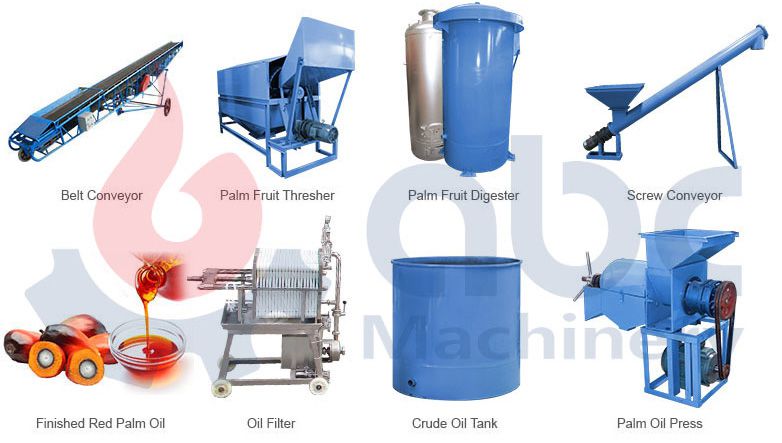
It is a lucrative endeavor to start palm oil processing business due to the increasing demand across the world. However, it is not easy to enter into the palm oil processing mill industry. You may have no ideas about below questions.
- How is the profit of palm oil making business?
- What equipment do I need? How to select it?
- How to choose the factory site? What is the oil extraction methods suitable for?
- What's the cost to start small scale or large scale palm oil manufacturing business?
ABC Machinery has been the industry of pam oil machinery manufacturing for at least two decades. After years of development, the Palm Oil Processing Machine we supply is suitable for industrial production, commercial business and farm use. Please contact us to get FREE customized project plant for your palm oil mill plant.

Buying Factory Price Palm Oil Processing Machinery for Business Plan
We offer customers with customied Turnkey Solutions, from evaluation, design, project management, process local manufacturing, installation, commissioning, after sales service. By studying every details and selecting ideal plan for the project. We ensure you get the BEST equipment and service. Our hot sale machinery for palm oil processing is generally composed of two types, including small scale palm oil mill machine plant and complete large scale palm oil production line.
Hot Sale Small Scale Palm Oil Mill Plant Display
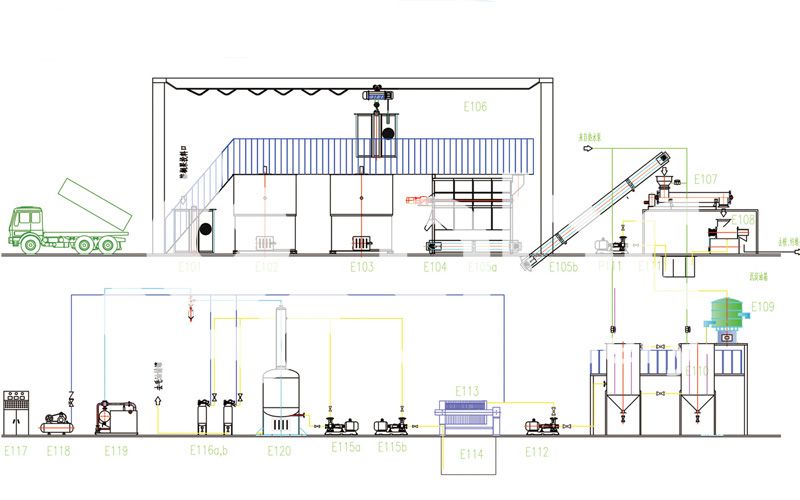
Small scale palm oil mill machine plant is specially designed and manufactured to meet the requirements of small scale production capacity, becoming popular due to the following highlights.
- Self-sufficient palm oil production, low production cost, low environmental pollution, resource recycling.
- Palm oil mill adopts the most scientific palm oil processing equipment configuration, using mechanical oil pressing technology to make successful extraction of palm oil from palm fruit.
- Suitable for processing palm oil in small farms, small-scale palm oil production workshops and factories and investing in palm oil processing industry.
- Popular in Africa, South Africa, USA, South America, Cameroon, Thailand, Ghana, Nigeria, etc.
- Simple structure, easy to install, operate and maintain.
If you want to start a small scale palm oil production plant or factory as your new business plan, we can offer you the high quality equipment and best service. Come and contact us soon!

Complete Large Palm Oil Manufacturing Plant for Sale
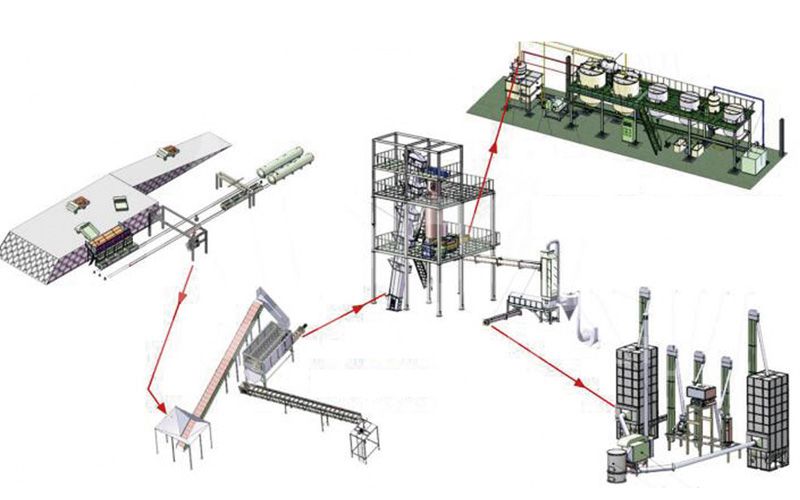
As you can see from the pictures above, a large-scale palm oil production plant includes a complete palm oil production process, which can even be divided into several plants. It can be divided into several processing plants according to the actual condition. Here is the typically divided processes table.
Video of Making Palm Oil in A Complete Palm Oil Processing Plant
Here is the video of a complete palm oil production line sent by our clients. Starting a complete large-scale palm oil production line for industrial purposes is not so easy. You can ask us for help, we can offer you the service from the business plan design to palm oil processing machinery installation and debugging. So, don’t hesitate to contact us!
Successfully Customize Business Plan for Palm Oil Production
Among many poor communities in the world, palm oil is considered for cooking and also as a source of calories and nutrition. It is a consumable vegetable oil extracted from the reddish pulp or the mesocarp of the oil palms. If you visit the tropical areas of Africa, Latin America of Southeast Asia, you will find palm oil being used as common cooking oil. As a result, palm oil processing business plan have become a rage in those areas with a number of plantations already operating there.
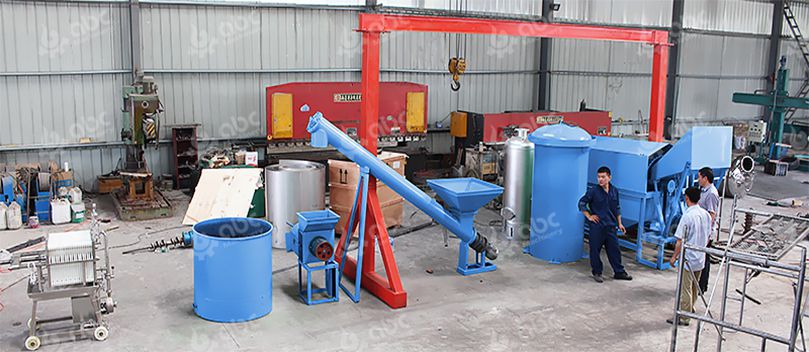
In order to make a palm oil production business plan design successfully and start palm oil production factory with low cost, you should do the following jobs. (Read more: Palm Oil Processing Plant Cost >>)
- Find Good Location
It is unnecessary to build up your palm oil milling plant around the market since you don’t sell produced palm oil to the customer directly. The good location for setting up palm oil plant factory is nearby oil palm plantation farm or at least close to place of rich oil palm supply. In addition, it should have good transportation system.
- Get Necessary and Reliable Equipment
In the past, palm oil was mainly extracted by rubbing and squeezing method. However, this method is inefficient and there's a lot of palm oil left in raw materials. Today, advanced palm oil mill machinery can extract most of the oil from the palm fruit. More importantly, most palm oil equipment can be installed locally, reducing costs and increasing efficiency of palm oil manufacturers.
- Setup the Factory
You may need to find some professional workers to set up the necessary infrastructure and install the processing machines. In most cases, the palm oil processing machine supplier or manufacturer will have engineers to help you design the factory layout, install and debug the equipment.
- Hire and Train Workers
The palm oil production plant should be provided with professional workers who can be hired or specially trained to operate all the equipment. For large scale palm oil milling factory, it may also need other staff, such as security personnel administrative staff and so on.
- Marketing Strategy Planning
A complete and prospective marketing plan can help you get more orders and build up your own brand. You can also suggest customers to help you advertise palm oil and bran.
How to Manufacture Palm Oil in Palm Oil Processing Business Plan?
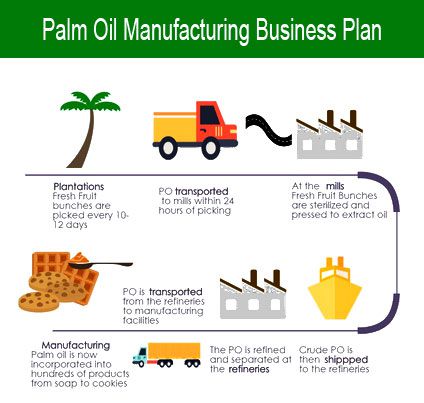
- The fresh fruit branches are then put on a rail-like system in the factory. Then this is put into a steriliser and cooked for 120 minutes. This is done in order to make the fruits come easily from the brunches. The fruits that are received are softer than before, so you can easily remove the pulp from the flesh of the palm.
- Next is the thrashing process. The cooked brunches are put inside a thrasher. The thrasher looks like a drum which has some holes on either side. Here the brunches are extracted off their liquids, and the dry brunches are later used to separate the fruits. The brunch waste which is produced is burnt and the ash that is produced is used as manure since it contains potassium.
- Next the palm oil is released in the fruit by breaking down the oil-bearing cells. There is a digester vessel where the fruits are thrown. The vessel contains a steam heating mechanism which breaks down the oily cells to easily extract the oil. The entire process required 30 minutes and the heating is done at 100 degree Celsius.
- As soon as the material is passed through the digester vessel, pressing is done and a pulp is produced which is made up of oil 53%, water 40% and the rest 7% comprises of solids. A cake like substance consisting of fibre and nuts is produced. The pressing is done either by a wet method using hot water or a dry method employing only squeezing as a process.
- Next is the purification process where the oil is separated from the impurities by decanting through three phases. The oil is then purified in a plate and is dried under a vacuum. This makes the oil thick and lastly it is filtered to remove any traces of impurities. (Related links: Palm Oil Refinery Plant >>)
- Finally the virgin palm oil is packaged and made ready for exporting. So, if you are thinking of a palm oil processing business plan, make sure you have calculated the expenses involved in the whole extraction and processing methods.
- After palm oil distillation, the stearin or glycerol tristearate is obtained with a melting point of 55 degrees Celsius, can it be purified by fractionation?
- Palm oil fractionation: The melting point of stearin or glycerol tristearate obtained from palm oil fractionation is generally around 54, while the melting point of soft fat obtained from fractionation is generally 24 degrees Celsius, but it is a mixture, not pure.
- Why does the operating pressure in the deodorization process have a great influence on the whole palm oil refining section?
- Fatty acids and odor components have corresponding boiling points at a certain pressure, which decreases as the operating pressure decreases. The operating pressure also has an important effect on the time to complete the vapor deodorization. The lower the pressure, the shorter the time required, all other conditions being equal. Deodorization tower vacuum is also related to the hydrolysis of grease, if the equipment vacuum is high, can effectively avoid the loss of distillation caused by the hydrolysis of grease, and to ensure that the low acid value of grease products. The production is generally 300-400Pa, i.e. 2-3mmHg residual pressure.
- - Small Palm Oil Press
- - 1-10 ton/day Mini Palm Oil Mill
- - 1-20 ton/day Small Palm Oil Mill
- - Small Palm Oil Refining Machine
- - fruit reception system
- - sterilizing system
- - threshing system
- - digesting system
- - pressing system
- - crude palm oil clarification system
- - bulk oil storage system
- - palm kernel recovery plant
- - screw oil pressing plant
- - solvent extraction plant
- - Degumming Process
- - Deacidification Process
- - Bleaching Process
- - Deodorization Process
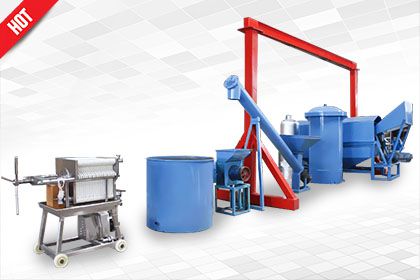
- How to Make Palm Oil Production Process Design for Starting Business?
- Start Palm Oil Processing Machine Selection for Business Plan
- Business Plan Guideline: Palm Oil Mill Plant Factory Layout Design
- How to Make Project Cost Budget for Palm Oil Processing Business Setup?


Palm Oil Business Plan
- Description
- Executive Summary
- Products & Services
- Market Analysis
Marketing Plan
- Management Plan
Financial Plan
What you get with palm oil business plan package, i.- executive summary.
Olive Tree Palm Oil, LLC is founded out of a desire to fill an identified need in the market for sustainable palm oil. Despite the growing demand for palm oil, traditional sources of palm oil are largely unsustainable and can have a serious impact on the environment. Olive Tree Palm Oil, LLC offers an alternative—sustainable and ethically-sourced palm oil from local, family-run farms in Portland and the surrounding areas. Our goal is to provide a safe and sustainable source of palm oil that meets the needs of our customers without compromising the environment.
Olive Tree Palm Oil, LLC is providing an innovative solution to the problem of unsustainable palm oil production. Through our sustainable palm oil products sourced from local, family-owned farms, customers are guaranteed the highest quality of palm oil available. We also provide educational materials to help customers understand the importance of sustainability when it comes to palm oil production. In addition, customers can save money on our discounted rates for sustainable palm oil products.
By working with local, family-owned farms and providing sustainable palm oil products, Olive Tree Palm Oil, LLC is playing a pivotal role in promoting sustainability and helping to protect the environment while also serving its customers. Customers can purchase our sustainable palm oil products with the assurance that they are making an environmentally conscious decision that will benefit future generations.
Target Market
Olive Tree Palm Oil, LLC has crafted a target market of customers who are looking for ethically-sourced, sustainable palm oil products. Our target customers include any individual, business, or organization looking to purchase palm oil products from trustworthy and reputable sources. We are committed to providing them with high-quality products that are sustainably produced from our family-run farms. Additionally, we will target customers looking for educational materials about sustainable palm oil production, as well as those looking for discounted prices for their sustainable palm oil products.
Competition
The competitive landscape in the sustainable palm oil market is intense, with a wide range of products and services vying for customer attention. Olive Tree Palm Oil, LLC will be competing against traditional palm oil products as well as a variety of other sustainable palm oil providers. Many of these competitors offer their customers cheaper, less sustainable options for their palm oil needs. In order to stand out from the competition, Olive Tree Palm Oil will focus on providing quality, sustainable palm oil from family-run farms, as well as offering discount options for our customers. We will also offer educational materials about sustainable palm oil production and help our customers find sustainable palm oil suppliers in the area.
Financial Summary
The financial plan of Olive Tree Palm Oil, LLC is designed to cover all costs associated with the establishment and operation of our sustainable palm oil business. Our plan is divided into key highlights related to our sales, costs, and profitability. These elements are detailed in the below bullet points.
- We anticipate our initial costs to launch the business to be approximately $15,000, including legal fees and necessary equipment.
- We anticipate that our sales will reach $120,000 in year one and grow to $400,000 by year three.
- We forecast that our yearly gross profit will reach $240,000 by year three.
- Our business plan outlines a marketing strategy intended to best position our brand and products within the industry.
- We intend to reinvest our profits back into the company by reinvesting in marketing, product research and development, and diversifying our product offerings.
Funding Requirements
Olive Tree Palm Oil, LLC will require capital investment for the following:
- Startup and operational expenses
- Equipment and infrastructure
- Research and development
- Marketing and promotion
- Supplier and vendor relationships
- Employee salaries
The total amount of capital needed to become operational is estimated to be around $500,000. Funds will be allocated across the aforementioned categories to ensure the company has sufficient capital for startup costs and that our sustainable palm oil business can become profitable in a timely manner.
Milestones & Traction
At Olive Tree Palm Oil, LLC, we understand the importance of setting and achieving tangible goals for our company’s progress. We have outlined our current position in the market, as well as short-term and long-term goals. This roadmap is broken down into several categories, such as product research and development, operational set-up, customer engagement, and outreach initiatives.
In the product research and development category, we are currently in the process of researching and developing sustainable and ethical palm oil production practices. We are aiming to develop a variety of refined and unrefined palm oil products to suit the needs of our customers. By the end of 2021, we plan to have completed research and development of these products, and to have them ready for sale to our customers.
In the operational setup category,we plan to open a production facility in Portland, Oregon by the end of 2021. This facility will allow us to process, refine, and package our sustainable and ethical palm oil products. We also plan to use the facility to provide educational materials and resources about the positive impact of sustainable palm oil production.
In the customer engagement and outreach category, we plan to roll out a comprehensive marketing plan by the end of 2021. This plan will focus on increasing our reach and visibility within the Portland area, and on engaging with new and existing customers. We will also be looking to partner with local organizations, to help spread our message of sustainable palm oil production.
Finally, we plan to review and monitor our progress regularly, in order to ensure that we are achieving our goals and staying on track. This review process will not only help us assess our progress, but also take into consideration any developments that may impact our operations.
II.- Products & Services
The current dilemma facing consumers is that palm oil is associated with negative environmental impacts and unethically sourced from large-scale plantations. The global palm oil industry is dependent on unsustainable harvesting, leading to habitat destruction and displacement of local communities. As a result, an alternative source of palm oil that is socially and environmentally responsible is needed.
Olive Tree Palm Oil, LLC will offer a comprehensive suite of palm oil products and services to address the needs of our customers. Our core offering is sustainably sourced palm oil, which we will acquire from family-run palm oil farms in the local Portland area. We provide both refined and unrefined palm oil products, giving our customers multiple options for their needs. In addition, through Olive Tree Palm Oil, LLC, we will also provide educational materials about sustainable palm oil production methods and help customers locate the best suppliers in the area. We will also offer our customers discounts on sustainable palm oil products, giving them the opportunity to buy quality sustainable palm oil at an affordable price. By providing these comprehensive products and services, our customers will be able to find the best, most sustainable palm oil to meet their needs.
Validation of Problem and Solution
The current market for palm oil is largely dominated by non-sustainable suppliers, and this has led to a lack of environmental and social stewardship in the production of palm oil. Studies have demonstrated that sustainable production of palm oil can reduce environmental pressures and safeguard health and livelihoods of local communities. Olive Tree Palm Oil has conducted research to assess the feasibility and impact of introducing sustainable palm oil to the region. Our findings demonstrate that there is a strong market for sustainable palm oil, and that consumers are willing to pay a premium for ethically sourced products. Furthermore, our extensive on-the-ground research has identified local sources, suppliers, and processors that can provide high-quality sustainable palm oil at a price that is competitive in the market.
Product Overview
Olive Tree Palm Oil, LLC is committed to providing quality, sustainable palm oil sustainably sourced from our family-run farms. We offer a variety of refined and unrefined palm oil products to meet the needs of our customers, from luxurious soaps and aromatic oils to commercial-grade ingredients for food processing. Our products are sustainably sourced from our family-run farms, providing customers with a safe, ethically-sourced alternative to traditional palm oil. We also provide educational materials, discounted pricing, and assistance for customers with finding suppliers. Utilizing our sustainable palm oil products provides our customers with the confidence that they are using a product that is certified safe and sustainable.
The sustainable palm oil market is relatively new, and there is not a great deal of competition in the space. However, there are a few business startups offering products similar to ours. Our product stands out by providing quality, sustainable and locally sourced palm oil at an affordable price. We also provide helpful educational materials about sustainable palm oil production and assistance in finding the best palm oil suppliers in the area. These additional offerings set us apart from our competition, as well as offering more than just traditional palm oil.
As part of our mission to provide our customers with quality and sustainable palm oil, we have already taken key steps to establish our business, from choosing a location to submitting the necessary paperwork. Our roadmap to setting up a sustainable palm oil business is as follows:
- Location scouting and selection
- Visiting local, family run-farms to secure our sources of sustainable palm oil
- Registration and licensing
- Formation of our core team
- Determining the pricing of our products
- Developing a comprehensive educational outreach program
- Creating a safe, integrated sales process
- Identifying reliable suppliers of sustainable palm oil
Our roadmap reflects the continuous commitment and hard work of our team to provide our customers with a unique and sustainable palm oil experience. We look forward to continuing to grow in the years to come.
III.- Market Analysis
Market segmentation.
The potential customers for Olive Tree Palm Oil can be segmented into various groups to identify the clear target market. Segmentation is done based on various characteristics such as geographical area, income, preferences for sustainable oil, financial capabilities etc.
The segmentation table is given below:
Target Market Segment Strategy
Our target market segment for our Palm Oil business will include industries looking for reliable, high-quality palm oil to use in the production of food, cosmetics and industrial products. As the demand for palm oil is increasing due to its popularity for providing alternative sources of fat, we plan to meet the ever-growing demand for palm oil in the international market, as well as in local markets.
Our ideal customer would most likely be volume purchasers who need a reliable supply of palm oil. They should have an established business with a strong track record of producing quality products, with a great reputation in the industry. Our customers must demonstrate commitment to quality and ethical practices and should have an adequate financial strength to support their procurement.
Key Customers
Our ideal customer archetype for our palm oil business is, primarily, food companies looking to source their palm oil from a dependable and high quality provider, as well as small-scale agricultural businesses looking for reliable and cost-effective palm oil sourcing and processing. These customers should be drawn to our commitment to quality, diversity, and sustainability, as well as our affordable prices, customer service, and transparent business practices.
Future Markets
The potential palm oil market is expected to remain strong due to its popularity and versatility as a natural product. Our business strategy is to capitalize on new opportunities arising from consumer preferences, and to establish a global presence to capture a larger share of the market. To achieve this, we are committed to continuing our research and development initiatives to expand our production capacity and maintain quality standards, while also investing in marketing and promotional campaigns. Additionally, by forging strategic partnerships with local buyers, we will be able to increase our market penetration, and ensure the sustainability of our business in the long-term.
Olive Tree Palm Oil, LLC’s major competitors are current palm oil producers and suppliers. As an up-and-coming sustainable palm oil provider, the company is smaller and less experienced compared to its competition. Below is a table of potential competitors:
As Olive Tree Palm Oil, LLC is based in the same city and state as its competition, the scale of competition is significantly higher than normal. In order to gain a strong foothold in the market, Olive Tree Palm Oil, LLC must differentiate itself from other palm oil suppliers.
IV.- Marketing and Sales Plan
At Olive Tree Palm Oil, LLC, our primary goal is to create a marketing and sales plan that maximizes our reach while remaining cost efficient. To this end, we plan to implement a mix of traditional and digital marketing strategies, to ensure a wide range of customers have access to our sustainable palm oil. We will target local, ethical consumers as well as corporate customers who are interested in reducing their environmental impact. Our cost-effective strategies will include the following:
- Printed advertisements in local newspapers, magazines and online publications.
- Social media campaigns on relevant social media platforms, such as Twitter and Instagram.
- Word of mouth marketing efforts such as sponsoring community events and developing partnerships with local businesses.
- Educational materials and seminars, to promote sustainable palm oil practices and usage.
In addition to the strategies outlined above, we also have plans to increase customer engagement and loyalty by offering discounts and other incentives. Our goal is to ensure customer satisfaction with our products and services, while still remaining cost-effective in our marketing and sales plan.
We anticipate making a sizable number of sales from our palm oil business given the current market conditions, our capacity and our pricing strategy. Considering the current demand for palm oil, our efficient production capabilities and our competitive prices, we expect to generate impressive sales volumes. Our sales volumes will be further increased by a comprehensive marketing and advertising campaign conducted by our team.
Our current market research suggests that our sales numbers could rise steadily to reach a yearly maximum of XXX units. We base these estimates on our current production setup, the retail and wholesale channels we intend to use and our competitive pricing strategy.
Location and Facilities
Olive Tree Palm Oil, LLC is located in Portland, Oregon, where we have family-owned farms with direct access to the local palm oil we use in our products. Our physical presence in Portland provides us with a cost-effective operation, while our farms provide us with access to high-quality local oil. We have established our facility and are ready to provide our customers with the highest quality sustainable palm oil products.
Our facility includes state-of-the-art equipment for refining and packaging our products. We are also able to offer educational materials and assistance in finding the best sustainable palm oil suppliers in the area. Our space is conveniently located and allows us to serve our customers quickly and effectively.
Our palm oil business plan takes advantage of the latest technological advances to make sure that our clients' investments are well-protected, optimally managed and profitable. With proprietary software specifically designed for the palm oil industry, we are able to track the entire process from planting to harvesting and even distribution and sale. This allows us to create an efficient and accurate supply chain system, ensuring each individual output is maximized for maximum returns. Additionally, our monitoring systems enable predictive analytics to give a better understanding of how market changes may affect our margins, allowing customization of products and strategies when needed.
Equipment and Tools
To successfully operate a palm oil business, we will need to be equipped with the proper tools and equipment. Our required equipment and tools consists of an extraction machine, refining machine, storage tanks for finished product, containers for raw material, and other necessary machinery. We will need to purchase or rent the necessary equipment and consider the associated costs.
The following table outlines the cost associated with purchasing or renting the equipment:
V.- Management and Organization
Organizational structure.
Our organization will be comprised of a CEO, CFO, and Operations Director who together will report to the Board of Directors. Below is an overview of the structure including roles and responsibilites.
The flow of information between the different levels of the organization will be established through frequent communication, regular reporting and performance review sessions. This will help ensure that all members of the organization have access to the same information and can make decisions in order to move the business forward.
Management Team
In order to succeed, PalmOil Business will require experienced professionals in every level of our organizational hierarchy, from top to bottom. We anticipate need to recruit a skilled management team consisting of leadership, sales, operations and finance professionals. The following table outlines the potential candidates we are considering for high-level roles within the company:
Management Team Gaps
At this point in time, our palm oil business plan does not have individuals or candidates ready to fill certain positions or areas of expertise. We recognize the need to dedicate resources towards identifying and training team members who will take over these roles in the future.
We are currently lacking in specific skills related to the marketing and financial aspects of our business. Additionally, we need to identify personnel that possess expertise in the relevant areas of procurement and product management.
Personnel Plan
To run a successful palm oil business, a specific personnel plan must be implemented to ensure the most efficient use of resources. To that end, a table of potential positions required in order to effectively manage and operate the business can be found below:
Company History and Ownership
Olive Tree Palm Oil, LLC was founded in 2021 by Michael and Jessica Johnson, two Portland-area entrepreneurs with a strong background in sustainability and business. The Johnson family saw the need for an alternative palm oil source for customers, as most major brands use unsustainable palm oil sources. The mission of Olive Tree Palm Oil is to provide a safe, quality, and sustainable alternative to traditional palm oil.
The company is owned by Michael and Jessica Johnson and their two adult children, Emily and Jake. They each have equal ownership of the company and maintain a collaborative approach to business decision-making. They are committed to promoting sustainability from both an environmental and an ethical perspective, and are interested in educating their customers about sustainable palm oil practices.
A detailed roadmap of specific goals and objectives can help us manage and steer our palm oil business. We have created a table below outlining our major milestones and targets for the next 12 months.
Key Metrics
Key performance indicators (KPIs) are metrics used to measure and track the performance of various aspects of a palm oil business. These metrics help businesses to assess their overall performance and health, as well as to identify areas of opportunity. Examples of KPIs to measure the performance and health of a palm oil business include gross profit margin, customer satisfaction, production efficiency and effectiveness, inventory turns, and market share. By tracking these and other KPIs, businesses can better understand the functioning of their operations and the impact of their decisions on their overall performance.
VI.- Financial Plan and Metrics
Sales forecast.
A sales forecast is a crucial element of any business plan. It serves to document expected sales performance and provide guidance on necessary budget allocations. Our palm oil business plan includes a three-year sales forecast. Our projected sales are provided in the table below.
Palm Oil Financial Plan Key Inputs

Starting or running any business requires the investement of money. The palm oil business is no different. Additionally, a well formulated business plan should include information on not just income and profits but also expenses. These expenses are bound to fall into two categories: startup costs and operational expenses.
Startup Costs
Operational expenses.
This part of the business plan is where you present the three main financial documents of any startup: the income statement, the cash flow statement, and the balance sheet. These documents provide an overview of the financial activity of the business by providing detailed information on revenue and expenses, cash flow management and asset and liability balances. With these documents, investors can get a comprehensive view of your business plan.
Palm Oil Financial Plan Profit & Loss Statement
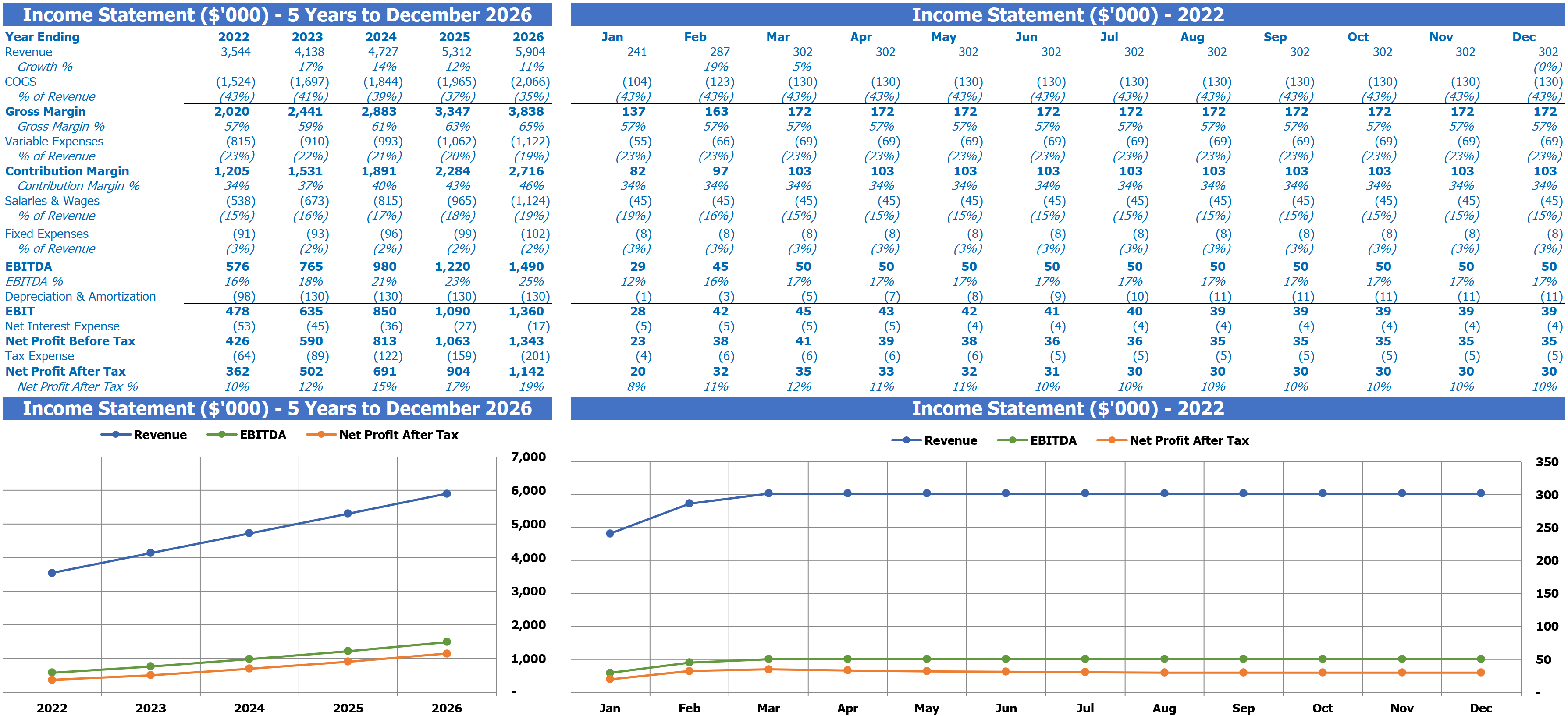
Palm Oil Financial Plan Cash Flow Statement
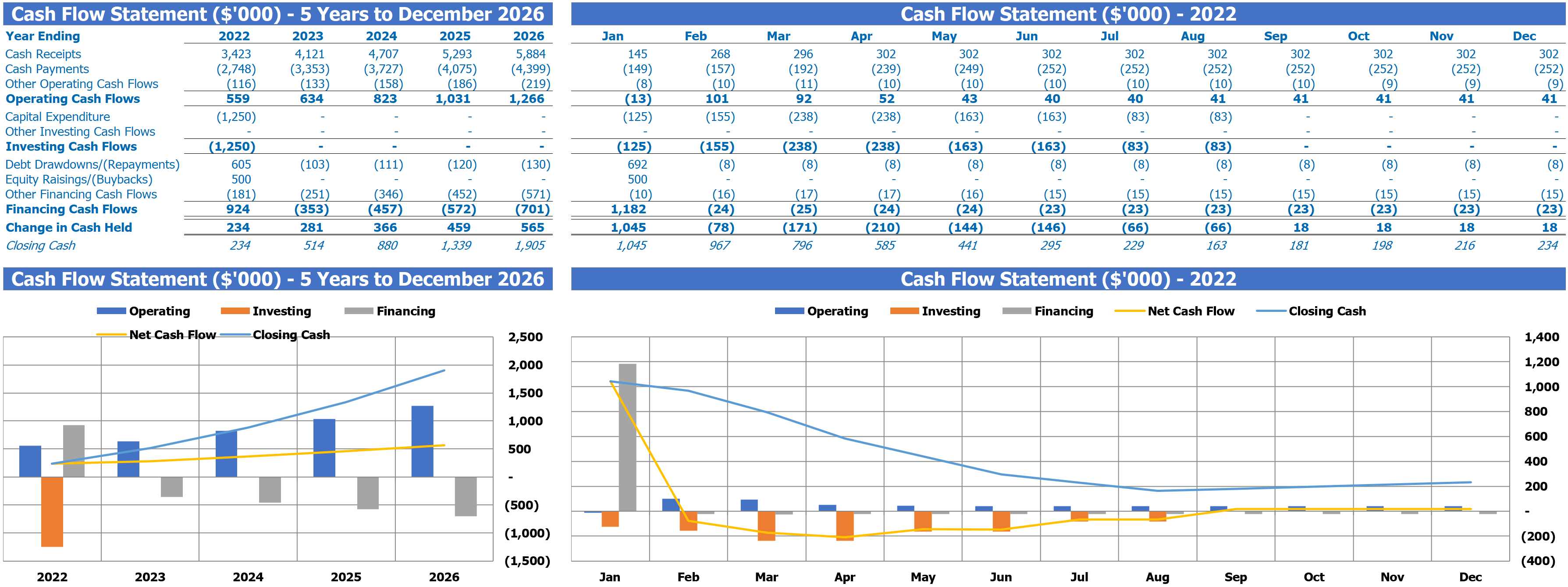
Palm Oil Financial Plan Balance Sheet Statement
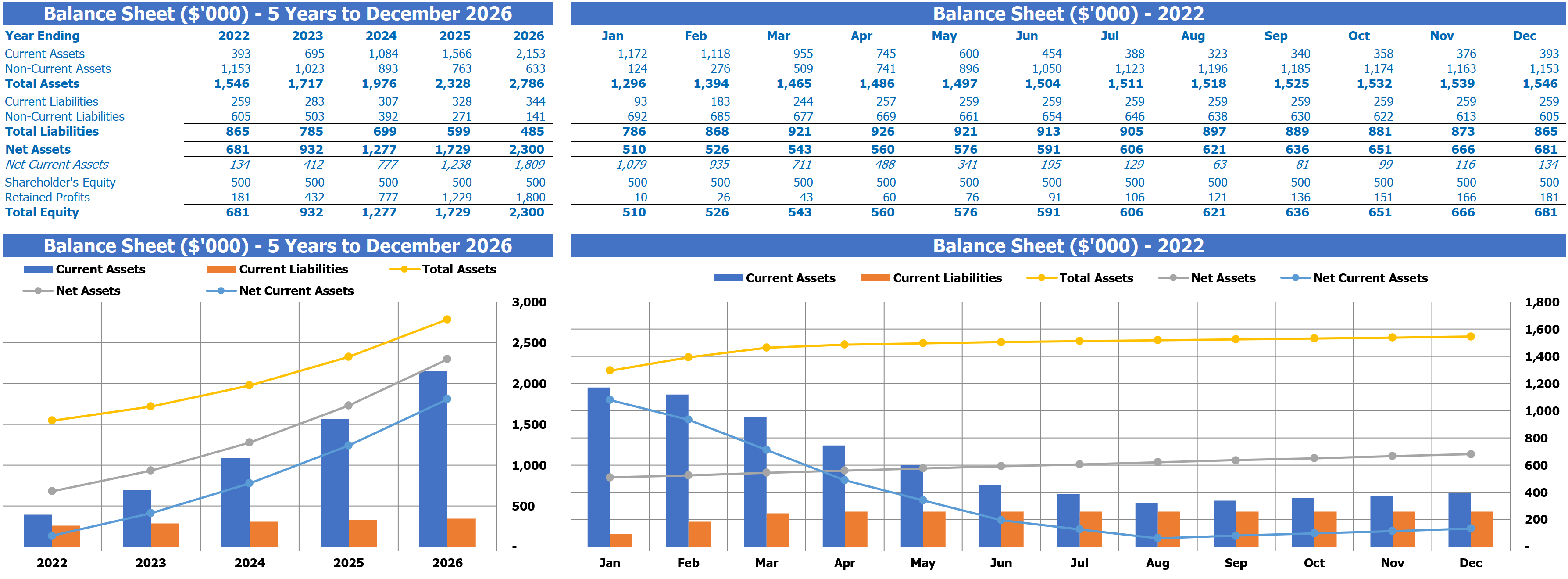
The personnel plan for our palm oil business outlines who and how we intend to hire and what the respective remunerations and roles will be in the business operations. We will be hiring experienced and capable personnel who are knowledgeable about the palm oil business. Our hiring efforts will involve recruiting personnel through job postings, networking, and local outreach programs. Additionally, we plan to cultivate relationships with educational institutions to strengthen our recruiting efforts.
The payment structure for our personnel will depend on the hiring role and experience level. While the exact remuneration packages will be based on individual negotiation, they will all remain within the market rate. Furthermore, all personnel will have access to medical and retirement benefits. In terms of roles, our personnel will take on various responsibilities such as managing operations and production, maintaining proper safety and quality standards, developing strategies, and creating promotional material.
Finally, all personnel hired will fit into each of our business operations by having a comprehensive understanding of the palm oil industry and being willing to work together with other personnel in the business. The integration of personnel into the business will be done in a streamlined and efficient manner, with attention to detail and a commitment to delivering excellence in our products and services.
Capital Requirements and Use of Funds
The capital requirements for our palm oil business plan should reflect our estimated costs for startup and ongoing operations. Crucially, the plan should also contain an outline of how the funds raised will be allocated. We intend to allocate our capital in a way that will ensure maximum return on investment for our investors or lenders.
Our capital will be allocated to the following areas:
- Operational expenses, including personnel, materials and equipment, building and facility expenses;
- Marketing and promotional campaigns;
- Administrative costs;
- Research and development; and
- General capital expenditures.
We believe that ensuring adequate capital allocation across these five categories is essential to the success of our business. We also intend to allocate a portion of our capital to promote sustainable palm oil farming practices and to support the communities surrounding our production facilities.

Exit Strategy
The exit strategy for our palm oil business plan is focused on finding potential buyers or partners who will be interested in our product and the mission behind our business. We intend to bring in buyers or partners who could help accelerate the growth of the business. Depending on the buyer, our plan may include selling the business, merging with a corporate partner or a private investor, or passing the business along to a family member or an employee.
Our exit strategy also includes establishing a solid network we can rely on for advice and guidance. The exit strategy should also be revisited over time to ensure it remains in line with changes in the industry and the goals of the business.
Customer Reviews
Very useful tool

- Yekaterinburg
- Novosibirsk
- Vladivostok

- Tours to Russia
- Practicalities
- Russia in Lists
Rusmania • Deep into Russia
Out of the Centre
Savvino-storozhevsky monastery and museum.

Zvenigorod's most famous sight is the Savvino-Storozhevsky Monastery, which was founded in 1398 by the monk Savva from the Troitse-Sergieva Lavra, at the invitation and with the support of Prince Yury Dmitrievich of Zvenigorod. Savva was later canonised as St Sabbas (Savva) of Storozhev. The monastery late flourished under the reign of Tsar Alexis, who chose the monastery as his family church and often went on pilgrimage there and made lots of donations to it. Most of the monastery’s buildings date from this time. The monastery is heavily fortified with thick walls and six towers, the most impressive of which is the Krasny Tower which also serves as the eastern entrance. The monastery was closed in 1918 and only reopened in 1995. In 1998 Patriarch Alexius II took part in a service to return the relics of St Sabbas to the monastery. Today the monastery has the status of a stauropegic monastery, which is second in status to a lavra. In addition to being a working monastery, it also holds the Zvenigorod Historical, Architectural and Art Museum.
Belfry and Neighbouring Churches

Located near the main entrance is the monastery's belfry which is perhaps the calling card of the monastery due to its uniqueness. It was built in the 1650s and the St Sergius of Radonezh’s Church was opened on the middle tier in the mid-17th century, although it was originally dedicated to the Trinity. The belfry's 35-tonne Great Bladgovestny Bell fell in 1941 and was only restored and returned in 2003. Attached to the belfry is a large refectory and the Transfiguration Church, both of which were built on the orders of Tsar Alexis in the 1650s.

To the left of the belfry is another, smaller, refectory which is attached to the Trinity Gate-Church, which was also constructed in the 1650s on the orders of Tsar Alexis who made it his own family church. The church is elaborately decorated with colourful trims and underneath the archway is a beautiful 19th century fresco.
Nativity of Virgin Mary Cathedral

The Nativity of Virgin Mary Cathedral is the oldest building in the monastery and among the oldest buildings in the Moscow Region. It was built between 1404 and 1405 during the lifetime of St Sabbas and using the funds of Prince Yury of Zvenigorod. The white-stone cathedral is a standard four-pillar design with a single golden dome. After the death of St Sabbas he was interred in the cathedral and a new altar dedicated to him was added.

Under the reign of Tsar Alexis the cathedral was decorated with frescoes by Stepan Ryazanets, some of which remain today. Tsar Alexis also presented the cathedral with a five-tier iconostasis, the top row of icons have been preserved.
Tsaritsa's Chambers

The Nativity of Virgin Mary Cathedral is located between the Tsaritsa's Chambers of the left and the Palace of Tsar Alexis on the right. The Tsaritsa's Chambers were built in the mid-17th century for the wife of Tsar Alexey - Tsaritsa Maria Ilinichna Miloskavskaya. The design of the building is influenced by the ancient Russian architectural style. Is prettier than the Tsar's chambers opposite, being red in colour with elaborately decorated window frames and entrance.

At present the Tsaritsa's Chambers houses the Zvenigorod Historical, Architectural and Art Museum. Among its displays is an accurate recreation of the interior of a noble lady's chambers including furniture, decorations and a decorated tiled oven, and an exhibition on the history of Zvenigorod and the monastery.
Palace of Tsar Alexis

The Palace of Tsar Alexis was built in the 1650s and is now one of the best surviving examples of non-religious architecture of that era. It was built especially for Tsar Alexis who often visited the monastery on religious pilgrimages. Its most striking feature is its pretty row of nine chimney spouts which resemble towers.

Plan your next trip to Russia
Ready-to-book tours.
Your holiday in Russia starts here. Choose and book your tour to Russia.
REQUEST A CUSTOMISED TRIP
Looking for something unique? Create the trip of your dreams with the help of our experts.

IMAGES
VIDEO
COMMENTS
The operational plan outlines the day-to-day activities and resources required to run your palm oil production venture efficiently. Define the roles and responsibilities of key personnel, describe the equipment and infrastructure needed, and establish quality control measures. It is also essential to consider sustainability practices, waste ...
A Sample Oil Palm Plantation Business Plan Template. 1. Industry Overview. The oil palm processing industry is an industry that thrives in the African continent and in some parts of Asia. Nigeria is one of the countries in Africa that have loads of players in this industry. Although locals in rural communities run this type of business on a ...
Lastly, address any funding needs in the "ask" section of your executive summary. 2. The presentation of the company. As you build your palm oil producer business plan, the second section deserves attention as it delves into the structure and ownership, location, and management team of your company.
The next step to start an oil palm farm is to choose the company's market positioning. Market positioning refers to the place your product and service offering occupies in customers' minds and how it differs from how competitors are perceived. Being perceived as a high-end solution, for example.
The palm oil industry has a bright future, with a projected compound annual growth rate of 5.3% from 2021 to 2026. Investing in a palm oil production business can yield high returns, with an average profit margin of 30%. As the demand for palm oil continues to increase, starting your own palm oil milling business is a lucrative opportunity to ...
The fresh, organic palm oil would provide customers with a healthier, tastier cooking oil option, the palm oil products would give customers a range of products to choose from, and the technical assistance would be invaluable in helping customers ensure that their oil palms are properly cared for and producing the best quality oil possible.
Dive into each step, from extraction to purification, for a clear understanding of Starting a Business in Palm Oil Manufacturing. Discover essential steps to launch a successful palm oil production business. From understanding market trends to setting up processing units, get insights and tips on starting a lucrative palm oil venture.
The palm oil industry is on the rise, and if you have been considering starting your own palm oil production business, now is the time to seize the opportunity. According to the latest statistics, the global palm oil market size was valued at $72.6 billion in 2020 and is projected to reach $114.4 billion by 2028, growing at a CAGR of 6.7%.
The marketing and sales strategy for a palm oil production business plan should include a detailed analysis of the target market, the competition, and the company's strengths and weaknesses. The plan should also include a sales forecast, a marketing budget, and a timeline for implementing the marketing and sales strategy.
Ensure that there is adequate spacing between the plants. Without adequate spacing, the roots will interfere with each other, leading to limited growth and low yield. The best spacing is 8-9 meters between any two plants. Weed the farm and apply fertilizer to the plants at intervals.
Palm Oil Business Plan. According to World Bank estimates, the population of Nigeria is 206million. The size GDP of the Nigerian economy is N18.3trillion. The Nigerian economy can be split into two parts: Oil Sector and Non-Oil Sector. Agriculture in Nigeria belongs to the Non-oil sector along with other industries like Information ...
Palm Oil Business Plan Simplified. 1.1 Name of business:The name of the company is TWO BROTHERS TRADING COMPANY LIMITED. 1.2 NATURE OF BUSINESS: TWO BROTHERS TRADING COMPANY LIMITED was incorporated on the 6th of March 2017 with a share capital of one million Naira.
Oil palm business models are defined as the oil palm production system, including the producers, the milling units, the relations between industries and producers, and the intermediate actors if any. Based on literature review, field data collection from 2007 to 2010 in Indonesia and in 2012-2013 in Indonesia and Central African countries, the ...
How To Download The Palm Oil Plantation Business Plan Template PDF and Doc (with financial analysis) Above is a part of the Palm Oil business plan template in Nigerian. In case you need the complete Palm oil plantation business plan, follow the procedures to download it. Pay the sum of N8000 (Eight thousand naira only) to the account detail below:
EXECUTIVE SUMMARY OF BUSINESS PLAN As the need for palm oil grows in the country, the value of high-quality oil increases every day. ... The farm will have 130 palm trees per hectare and will be able to produce 500tonnes of palm fruit per harvest. Although the there is no huge local demand for palm kernel oil and its products,
The good location for setting up palm oil plant factory is nearby oil palm plantation farm or at least close to place of rich oil palm supply. In addition, it should have good transportation system. Get Necessary and Reliable Equipment. In the past, palm oil was mainly extracted by rubbing and squeezing method.
Get the best tips to create a comprehensive and effective business plan for palm oil production. Get helpful hints, tools, and resources to set up and optimize your palm oil business. ... The Surprising Profitability of CBD Oil Farming Aug 18, 2023. The Dirty Truth Revealed: How Profitable Carpet Cleaning Can be for Your Business Aug 18, 2023.
Dabeeo launches palm oil farm AI monitoring project in Indonesia, covering area larger than Seoul By Korea Herald. Published : May 22, 2024 - 09:00
Elektrostal is a city in Moscow Oblast, Russia, located 58 kilometers east of Moscow. Elektrostal has about 158,000 residents. Mapcarta, the open map.
March 17, 2011. Pavel Oderov was appointed as Head of the International Business Department pursuant to a Gazprom order. Pavel Oderov was born in June 1979 in the town of Elektrostal, Moscow Oblast. He graduated from Gubkin Russian State University of Oil and Gas with an Economics degree in 2000 and a Management degree in 2002.
Zvenigorod's most famous sight is the Savvino-Storozhevsky Monastery, which was founded in 1398 by the monk Savva from the Troitse-Sergieva Lavra, at the invitation and with the support of Prince Yury Dmitrievich of Zvenigorod. Savva was later canonised as St Sabbas (Savva) of Storozhev. The monastery late flourished under the reign of Tsar ...
The new facility at Domodedovo is open just nine months after John Deere first announced its plans at the Russia - U.S. Business Forum last summer. Deere received strong cooperation from the ...